
Valley Jewish leaders lobbied Congress for security funding and fighting antisemitism
PASSING THE BATON
Hava Tirosh-Samuelson is passing leadership of ASU Jewish Studies to Stanley Mirvis
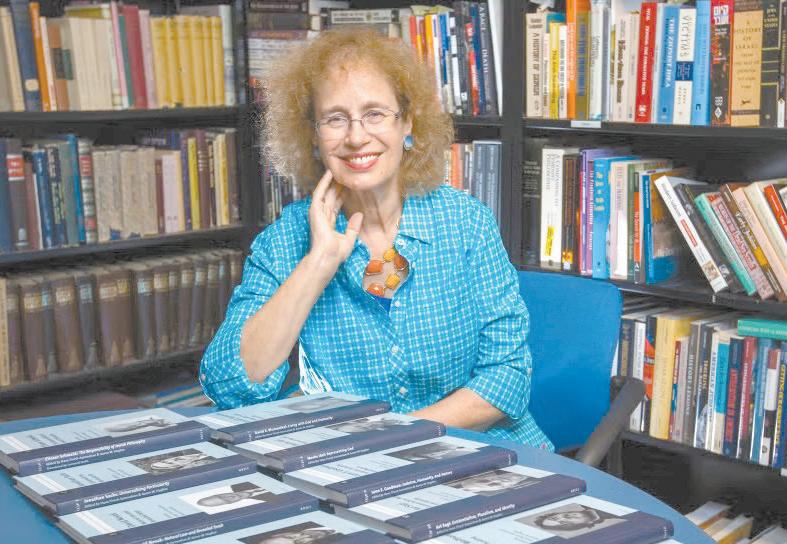


Valley Jewish leaders lobbied Congress for security funding and fighting antisemitism
Hava Tirosh-Samuelson is passing leadership of ASU Jewish Studies to Stanley Mirvis

SHANNON LEVITT | STAFF WRITER
Afew minutes after 9:30 a.m. on Wednesday morning, 17 Jewish high school students and their two chaperones arrived home in Phoenix and were greeted by a crowd of happy, and relieved, family members.
Brett Kurland, father of one of the students, kept checking his phone to know the moment his son’s plane touched down. Kurland, his wife, daughter and the other families milled behind the security exit at Phoenix Sky Harbor International Airport, anxiously awaiting the appearance of the group whose exit from Israel they had been anticipating for nearly a week.
“We were all excited, and when my son came out of security, it felt amazing to be able to give him a big hug,” Kurland told Jewish News.
Kurland’s son was part of a student trip to Israel sponsored by a Scottsdale synagogue. The group, made up of teens from various Valley temples, arrived in Israel on June 4 for a three-week stay. However, after Israel’s surprise attack against Iran’s nuclear program on June 13, and Iran’s reprisal, plans to return home early started percolating.
Almost immediately after the news of the bombing, Kurland learned via a WhatsApp thread among the students, parents and trip leaders that everyone was safe and they would come home as soon as possible. The timeline for the trip home stretched out over the next few days due to airspace closures, flight cancellations and travel safety concerns.
The waiting was excruciating.
“It was a nightmare unfolding in real-time. We were glued to the news while our daughter was
SEE RETURN, PAGE 2
SHANNON LEVITT | STAFF WRITER
Agroup of Jewish motorcycle enthusiasts gathered at the Arizona Jewish Historical Society (AZJHS) early on Monday, June 30. Five men, clad in jeans, matching t-shirts and black vests, their Harley Davidson and Honda motorcycles parked neatly in a row, were there to present a gift to the upcoming Hilton Family Holocaust Education Center, a day before setting off for Los Angeles to complete one leg of a cross-country ride memorializing the Holocaust.
Max Heeres, the Israeli-American president of the Lost Tribe of Arizona motorcycle club, was there, fairly fresh off his ride from rendezvousing with a New Mexico club.
“We met the Kosher Hogs of Albuquerque club yesterday up in Springerville, had a nice little ride in the mountains with them, before they handed us the ‘Circle of Chai’ to bring down here,” Heeres told the small crowd.
He held up a replica of the Circle of Chai statue, an imperfect circle reflecting the Jewish people’s survival through the centuries, before presenting a replica of the artwork to Rabbi Jeffrey Schesnol, project manager of the new Holocaust education center.
“This piece symbolizes the story of the Jewish people. It is cracked in many places, but it is never broken. That is our story,” Heeres said.
Heeres is one in a chain of riders transporting the statue as part of the Jewish Motorcyclist Alliance’s (JMA) North American Holocaust Museum Tour, which stops at 21 Holocaust museums in the United States and Canada.
SEE RIDE, PAGE 3
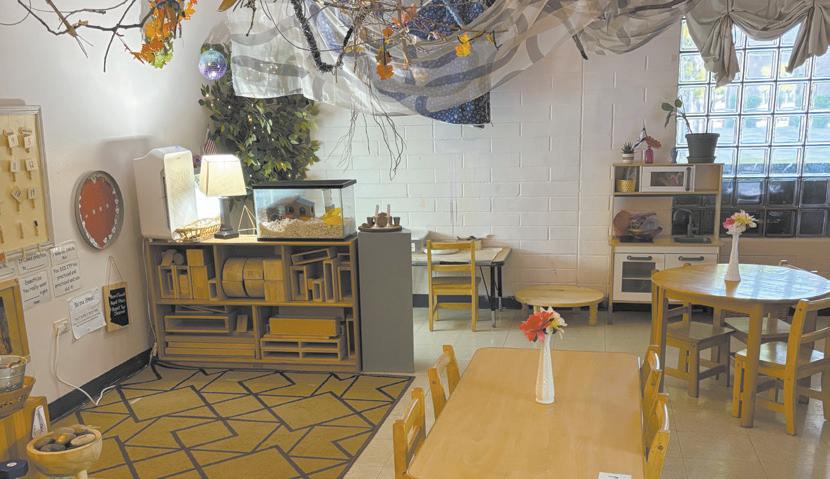

Temple Chai Early Childhood Center will incorporate the Reggio Emilia method this fall. See page 15.
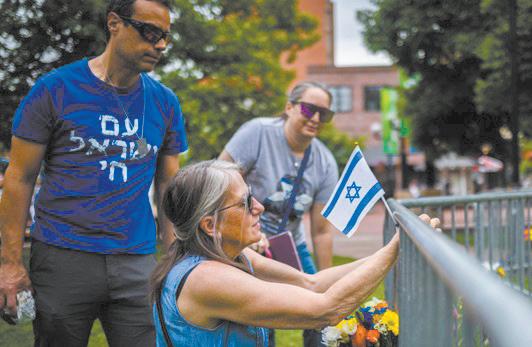
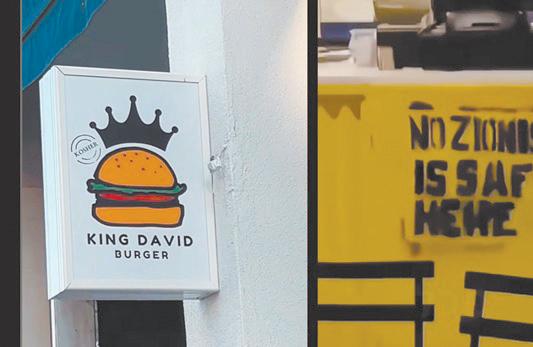
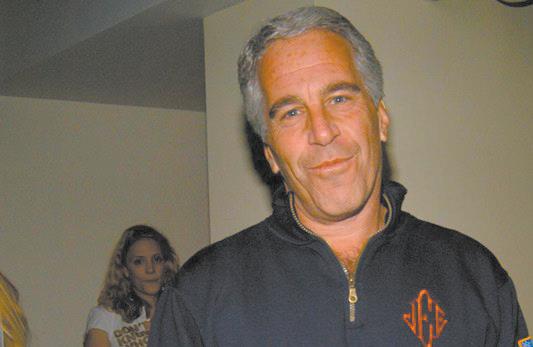
about her Judaism with her fellow council members and speaking out for her rights
there, seeing the missile strikes, sometimes just a few miles from where her group was staying,” one parent said in a press release.
Kurland knew his son and the others were “in and out of bomb shelters,” but he was optimistic things would work out.
“My wife and I knew they were in good hands and everyone was working as hard as they could to get them home quickly and safely,” he said. “It was just a waiting game.”
Still, he didn’t sit on his hands. Within two days of learning about the situation, he was in contact with Arizona elected officials to ask for their assistance. Kurland heard back from Democratic Senators Ruben Gallego and Mark Kelly right away.
January 6
“No parent should have to endure the fear and uncertainty of having their child caught in a conflict zone,” Gallego said in a press release. “My office worked around the clock, leveraging every available resource and contact, to ensure these Arizona students were brought home safely.”
January 20
January 6
February 3
January 20
February 17
March 10
February 3
February 17
March 24
March 10
March 31
March 24
April 7
March 31
April 21
April 7
May 5
April 21
May 19
August 25
September 1
“When I first heard about these students, as a dad, I imagined how their parents felt, separated from them without the ability to get them home,” Kelly said in a press release. “Senator Gallego and I immediately got to work on the phones, calling everyone we could to find them safe passage.
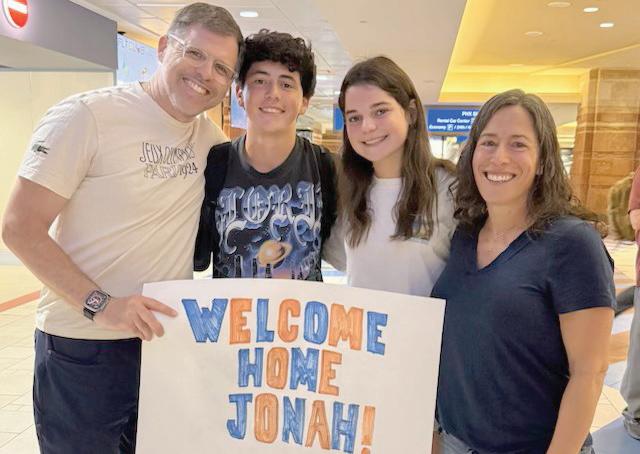
open council seat, but there’s no doubt she earned her position, Meyers said.
had to apply and demonstrate that she had something valuable to contribute, he said.
heard the other alternative, a boat to Cyprus, was not going to happen.
To become a council member, Stern had to apply and demonstrate that she had something valuable to contribute, he said.
She already has some practice at
about her Judaism with her fellow council members and speaking out for her rights
“One time, I was in class and someone called me the R-word and I told him not to. The teacher was in the hallway and another student repeated the word,” she said. Rather than letting the situation go, she told her theater teacher, who was able
She already has some practice at
“One time, I was in class and someone called me the R-word and I told him not to. The teacher was in the hallway and another student repeated the word,” she said. Rather than letting the situation go, she told her theater teacher, who was able
“If someone has a disability, saying the R-word is like saying the F-word,”
“If someone has a disability, saying the R-word is like saying the F-word,”
While performing in the musical “Hairspray,” she had another occasion to tangle with the offensive word, which
While performing in the musical “Hairspray,” she had another occasion to tangle with the offensive word, which

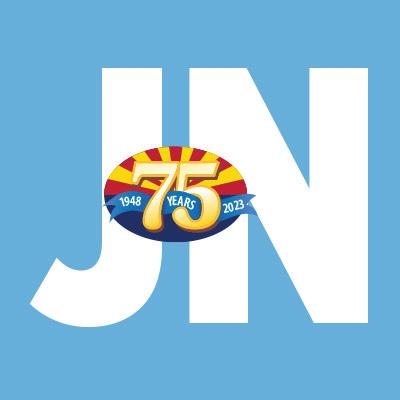
“That’s really bad and my friend said it on stage. I was not OK with that, so I went to the director and told her it was a bad word for people with disabilities, but she wouldn’t take it out,” Stern said.
“That’s really bad and my friend said it on stage. I was not OK with that, so I went to the director and told her it was a bad word for people with disabilities, but she wouldn’t take it out,” Stern said.
September 8
October 6
May 5
June 9
May 19
July 14
June 9
August 4
July 14
September 15
October 13**
The senators called the Israeli Consulate General and the Israeli Consulate in Los Angeles, to stress the need to get the Arizona teens home safely and quickly. Republican David Schweikert (CD-1) got involved, as did Ambassador Mike Huckabee.
September 15 October 6 October 13** October 20 November 3
October 20
November 10
November 3
November 17
November 10
December 1
November 17
“They were treating it as if our kids were their own children,” Kurland said. “I knew the moment there was an opportunity to get them out, they would get out.”
August 4
August 18*
December 15
December 1
December 15
It seemed like it would happen on June 19. They booked a flight for that Thursday only to have it canceled for security reasons. Kurland was getting on a plane himself when he heard about the cancellation. He also
August 18* August 25 September 1 September 8
Happily, late that night, he learned from one of the other parents that the Cyprus option was back on and the teens would be on the boat within a day, and maybe even home by the following Tuesday.
“She’s on the council because she deserves to be on the council,” he said.
“She’s on the council because she deserves to be on the council,” he said. Stern is creating a life and career as a member of her community, which makes her a great addition.
Stern is creating a life and career as a member of her community, which makes her a great addition.
The trip to Cyprus took 18 hours, which made it especially “nerve wracking” for Kurland and the other parents because the boat had no Wi-Fi.
As stressed as Kurland was, his son handled it “pretty well. He was concerned, but felt like it would work out,” Kurland said. It helped that he was with several kids he had grown up with. One of the chaperones had been his teacher at the Temple Chai Early Childhood Center.
“The program leaders and JNF were doing everything they could to keep our kids safe, but getting them back was everyone’s top priority,” said parents Adam and Renee Shprecher in a press release.
Stern graduated from McClintock High School in Tempe last year and now attends Glendale Community College, with a focus on dance. She is a regular performer at Detour Company Theatre, a Scottsdale theatre company for adults with intellectual, developmental and physical disabilities.
Stern graduated from McClintock High School in Tempe last year and now attends Glendale Community College, with a focus on dance. She is a regular performer at Detour Company Theatre, a Scottsdale theatre company for adults with intellectual, developmental and physical disabilities.
She let her mother know about the conflict and they were able to convince the director of the need to remove the word from the script.
She let her mother know about the conflict and they were able to convince the director of the need to remove the word from the script.
Congregation Beth Israel Rabbi Stephen Kahn flew to New York to meet the students at their first port of entry on their return
“My friend Al was next to me when I told the director and he gave me the biggest hug ever and said that he loved me so much,” Stern said. Sadly, Al died in a car crash on Oct. 24, 2021.
“We are thrilled the kids and staff are home safely,” Kahn told Jewish News in a text. “At the same time, our thoughts remain with the Israeli soldiers and civilians who died, were injured and lost their homes and communities these past two weeks.”
In fact, when Stern attended her first council meeting in January, she couldn’t wait to tell people of her involvement with Detour and share information about its upcoming shows.
The parents were in daily contact with the trip’s leaders, sponsors and Jewish National Fund-USA. (The teens spent some time on Jewish National Fund-USA’s Alexander Muss High School campus, including the last several days leading up to their departure.)
In fact, when Stern attended her first council meeting in January, she couldn’t wait to tell people of her involvement with Detour and share information about its upcoming shows.
“There’s no question that she is going to thrive,” Meyers said. “She’s very gregarious and passionate about the things that matter to her.”
Heart Can’t Even Believe It: A Story of Science, Love and Down Syndrome,” Silverman’s book about her daughter. When Gesher’s speakers’ bureau, Damon Brooks & Associates, was asked to find a speaker about Down syndrome for an event this spring, Hummell first asked Silverman to speak, thinking Stern might be too young.
Heart Can’t Even Believe It: A Story of Science, Love and Down Syndrome,” Silverman’s book about her daughter. When Gesher’s speakers’ bureau, Damon Brooks & Associates, was asked to find a speaker about Down syndrome for an event this spring, Hummell first asked Silverman to speak, thinking Stern might be too young.
They decided instead that Stern should tell her own story; it’s a real bonus that she is not afraid of public speaking.
“That was hard; it’s very hard to get emotions out and I was very, very upset,” she said.
“My friend Al was next to me when I told the director and he gave me the biggest hug ever and said that he loved me so much,” Stern said. Sadly, Al died in a car crash on Oct. 24, 2021.
“That was hard; it’s very hard to get emotions out and I was very, very upset,” she said.
On the recent anniversary of his death, Stern made a cake and took it to the crash site.
During the 12 days he had to wait to see his son, Kurland “was getting messages from friends — both close friends and some I hadn’t spoken to in years. We got so much support from everyone.”
“There’s no question that she is going to thrive,” Meyers said. “She’s very gregarious and passionate about the things that matter to her.”
Stern looks forward to sharing insights
Stern looks forward to sharing insights
“I don’t know how I did it without crying. I’m so proud of myself,” she said.
On the recent anniversary of his death, Stern made a cake and took it to the crash site.
“I don’t know how I did it without crying. I’m so proud of myself,” she said.
Though he wouldn’t want to go through the experience again, he was “encouraged to see how people are when things like this happen,” he said. JN
Amy Hummell, executive director of Gesher Disability Resources, agreed that Stern is a good fit for ADDPC because of her ability to self-advocate.
Hummell co-hosted a book event with Meyers a few years ago for “My
Amy Hummell, executive director of Gesher Disability Resources, agreed that Stern is a good fit for ADDPC because of her ability to self-advocate.
Hummell co-hosted a book event with Meyers a few years ago for “My
Phone: 602.870.9470 | Fax: 602.870.0426 | editor@jewishaz.com | advertising@jewishaz.com subscriptions@jewishaz.com | www.jewishaz.com
12701 N. Scottsdale Road, Suite 201, Scottsdale, AZ 85254 Phone: 602.870.9470 | Fax: 602.870.0426 | editor@jewishaz.com | advertising@jewishaz.com subscriptions@jewishaz.com | www.jewishaz.com
PUBLISHER
subscriptions@jewishaz.com | www.jewishaz.com
PUBLISHER Jewish Community Foundation of Greater Phoenix
Jewish Community Foundation of Greater Phoenix
PUBLISHER
ADVERTISING SALES CONSULTANT Jodi Lipson | 602.639.5866 jlipson@jewishaz.com
SENIOR ACCOUNT EXECUTIVE Jodi Lipson | 602.639.5866 jlipson@jewishaz.com
SUBSCRIPTIONS
Jewish Community Foundation of Greater Phoenix
GENERAL MANAGER Rich Solomon | 602.639.5861 rsolomon@jewishaz.com
GENERAL MANAGER
ASSOCIATE PUBLISHER Rich Solomon | 602.639.5861 rsolomon@jewishaz.com
Rich Solomon | 602.639.5861 rsolomon@jewishaz.com
MANAGING EDITOR Mala Blomquist | 602.639.5855 mblomquist@jewishaz.com
MANAGING EDITOR Mala Blomquist | 602.639.5855 mblomquist@jewishaz.com
MANAGING EDITOR
STAFF WRITER Shannon Levitt | 602.639.5854 slevitt@jewishaz.com
SUBSCRIPTIONS 602.870.9470 x 1 subscriptions@jewishaz.com
ADVERTISING SALES CONSULTANT Jodi Lipson | 602.639.5866 jlipson@jewishaz.com
602.870.9470 x 1 subscriptions@jewishaz.com
SUBSCRIPTIONS 602.870.9470 x 1 subscriptions@jewishaz.com
GRAPHIC DESIGNER Ebony Brown | 410.902.2333 ads_phoenixjn@midatlanticmedia.com
GRAPHIC DESIGNER Ricki Urban | 602.870.9470 X 2 advertising@jewishaz.com
Mala Blomquist | 602.639.5855 mblomquist@jewishaz.com
STAFF WRITER Shannon Levitt | 602.639.5854 slevitt@jewishaz.com
STAFF WRITER
Shannon Levitt | 602.639.5854 slevitt@jewishaz.com
GRAPHIC DESIGNER Ebony Brown | 410.902.2333 ads_phoenixjn@midatlanticmedia.com
They decided instead that Stern should tell her own story; it’s a real bonus that she is not afraid of public speaking.
“It’s not the same when someone tries to tell a person’s story for them,” Hummell said.
“It’s not the same when someone tries to tell a person’s story for them,” Hummell said.
Additionally, helping people with disabilities find jobs was one of the reasons for acquiring the bureau. Unemployment in the disability community is upwards of 75% and of that percentage, 75% are ready, willing and able to work — but haven’t been given the opportunity, Hummell said.
Additionally, helping people with disabilities find jobs was one of the reasons for acquiring the bureau. Unemployment in the disability community is upwards of 75% and of that percentage, 75% are ready, willing and able to work — but haven’t been given the opportunity, Hummell said.
“People have it in them to speak up but don’t know how, and often they’re not cheered on. Sophie has family support
“People have it in them to speak up but don’t know how, and often they’re not cheered on. Sophie has family support

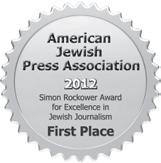

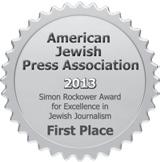

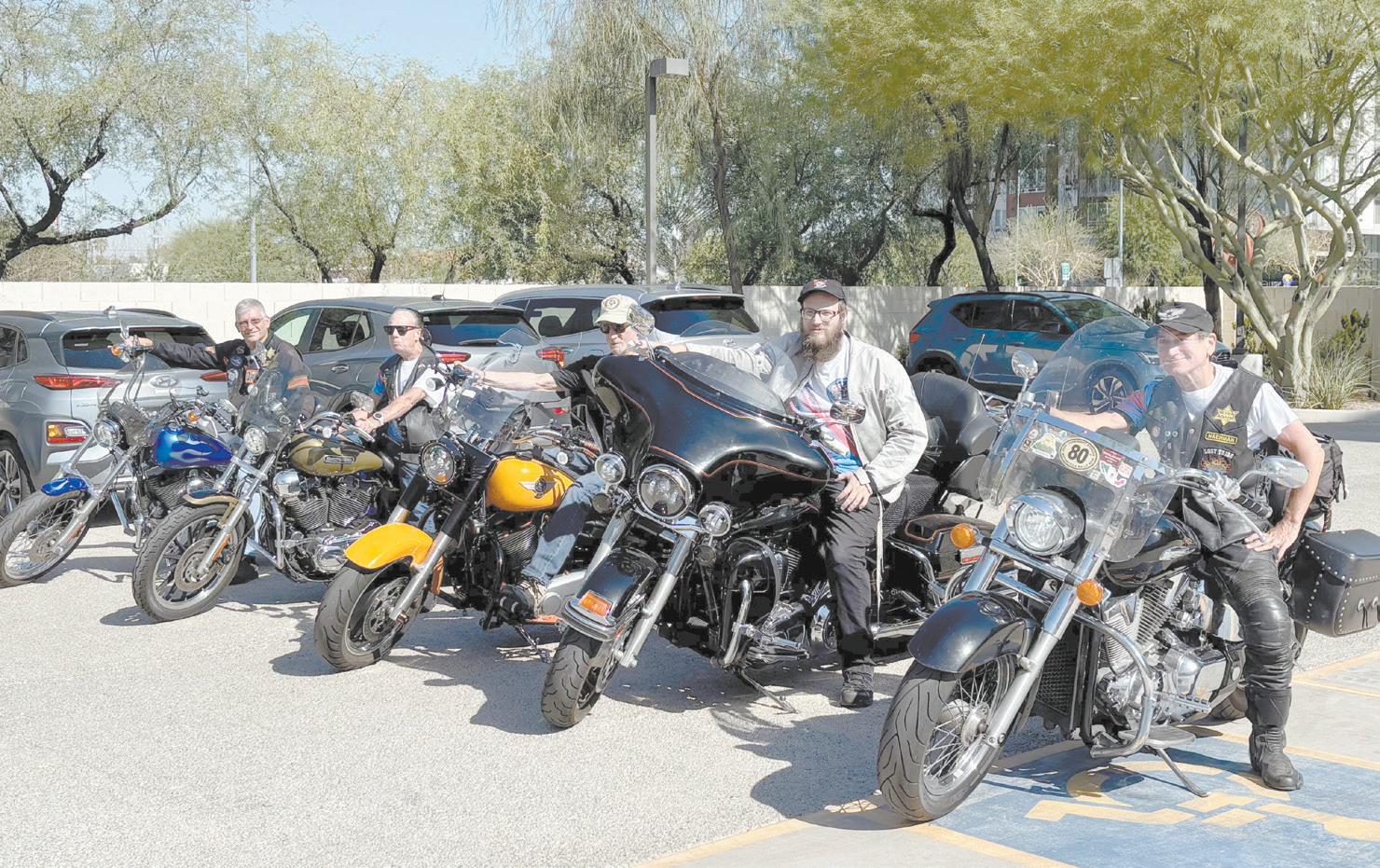
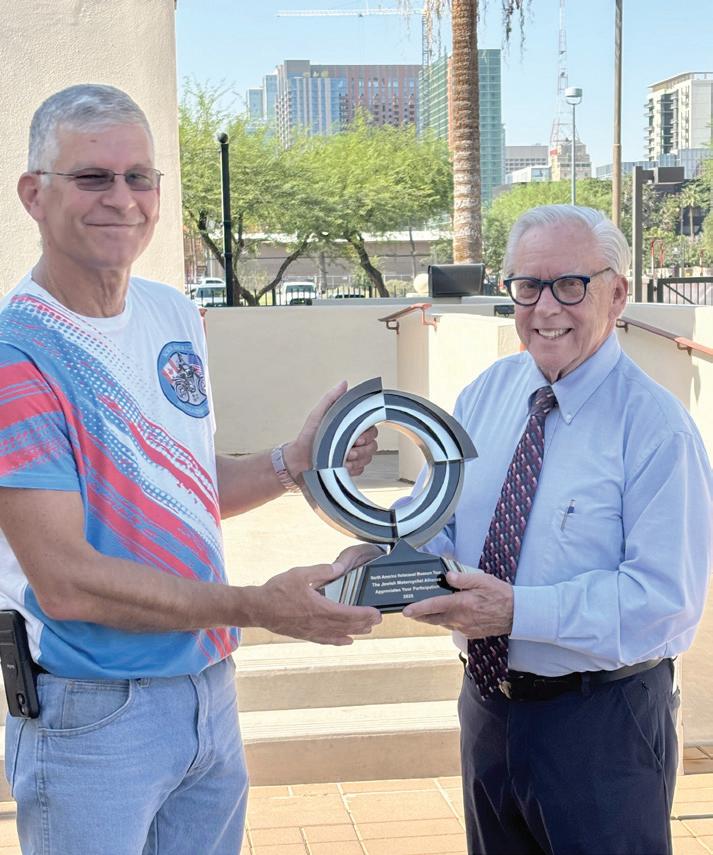
At each stop, the riders will meet with museum leadership to present them with a replica of the statue as a token of their gratitude for educating people on Holocaust history.
The nearly two-month tour began on June 8 and will conclude on July 30. Its creators hope to evoke the image of the Olympic torch being passed from person to person before the start of the games every four years. However, instead of running with a flame across the nation hosting the Olympics, the motorcyclists ride from one Holocaust museum to the next, transporting the Circle of Chai and raising funds for the museums.
Heeres, one of the event’s main organizers, was excited to plot a stop in Phoenix in anticipation of the Holocaust museum scheduled to open its doors in the spring of 2027.
“We now have a direct connection with our local museum, and that was part of the goal of this project,” Heeres said.
In thanking Heeres for the Circle of Chai, Schesnol called both the stop and the gift “a real feather in our cap for a Holocaust education center that just broke ground to receive. Thank you for recognizing us and bestowing this honor upon us.”
Talli Dippold, the center’s executive director, told the riders their “presence here today is more than symbolic. It’s a statement of solidarity, pride and commitment to preserving memory through movement.”
Heeres joked that when he first contacted AZJHS leaders several months ago, he had to explain the concept twice because “it’s not something that happens every day.” In fact, it is the first time the tour has happened. Given that it took so much time to organize, there has been no talk yet of repeating it. Still, Heeres was looking forward to the
ride to Los Angeles, a ride he planned to make alone during the night.
“One hundred and ten degrees is one thing without sun and another thing completely with it,” he laughed. He didn’t want to risk anyone else’s safety riding in the heat.
Lost Tribe member Nevin Heitner couldn’t go to Los Angeles but said it wasn’t the heat that deterred him.
“Some of us have to work,” he laughed.
The tour will involve roughly 150 riders among the participating Jewish motorcycle clubs. The rides, though fun and meaningful, are tough and timeconsuming.
Steve and Debi Heims of Sedona were at the presentation. Steve, still a member of his New England Jewish motorcycle club, The Lonsmen (Yiddish for compatriot), rode in the tour’s first leg from Charlotte, North Carolina, to Whitwell, Tennessee. The couple both ride, though Debi prefers shorter trips, and have been friends with Heeres for years.
Jewish fellowship is one of JMA’s main attractions. Its stated mission is to create a global environment where Jews who ride motorcycles can get together to talk about anything that’s of concern to the Jewish community at large, as well as discuss issues specifically concerning motorcycle riding.
Members often find themselves recounting their discovery of the existence of Jewish motorcycle clubs.
When Heitner first heard about the existence of such clubs, he was surprised.
“I lived in New York and Philadelphia and never heard of a Jewish motorcycle club. Jews aren’t supposed to ride motorcycles, right?”
The Heims learned about the clubs when they still lived in New England and took part in a fundraising ride through Worcester, Massachusetts.
“The organizer told me, ‘You should know there are Jewish motorcycle clubs.’
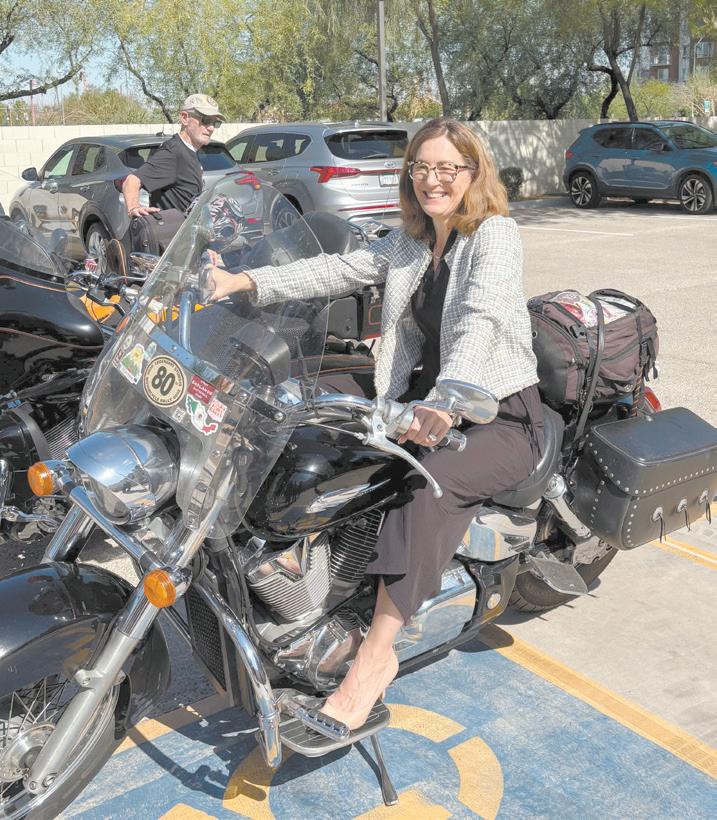
I said, ‘No, there are not.’ But I went home that night, and found JMA on the internet, and then found the Jewish motorcycle club in my area,” Steve Heims said.
Heeres’ daughter won a junior Emmy last year for her documentary about her dad’s club and what it means to him and the other members. She’s already put some more interviews with Jewish riders in the can since the tour began, and Heeres is anxious to see what she does with them.
Joining Heeres for the presentation at AZJHS were fellow Lost Tribe members Mike Brownstein, Doug Faigel, Heitner, Rabbi Aharon Ephraim Koff and Scott Stone. Faigel and Koff accompanied Heitner and Heeres to take the handoff from the Albuquerque club.
“You’re showing the world that Holocaust remembrance is not just something we look back on. It’s something we carry forward with courage, pride and purpose. It’s a living, moving, deeply meaningful act of education and memory. And we are so grateful to be part of it with you,” Dippold told them. JN
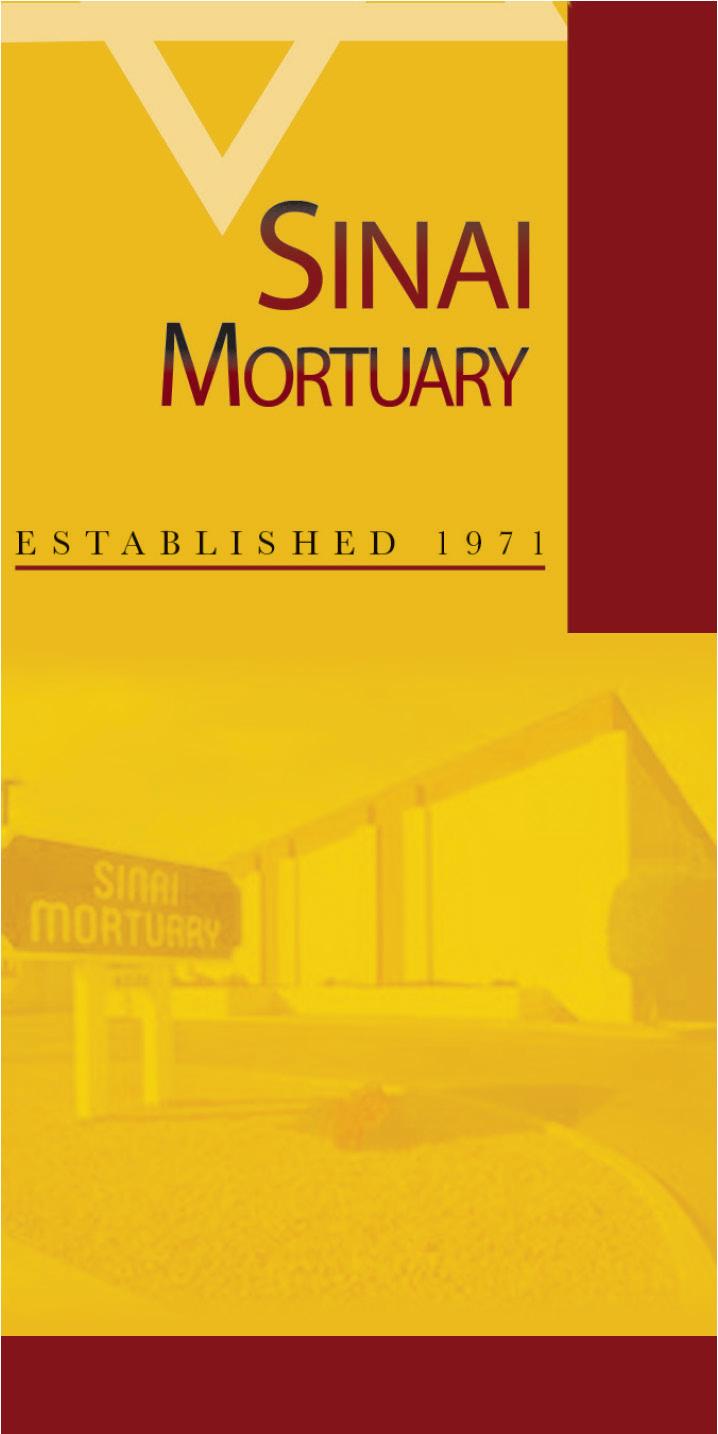
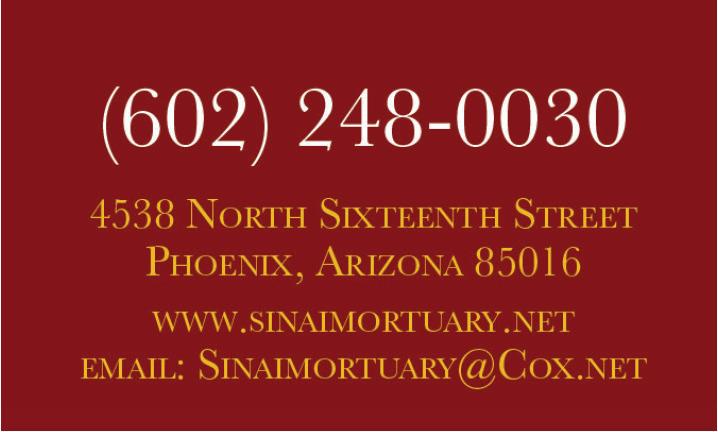
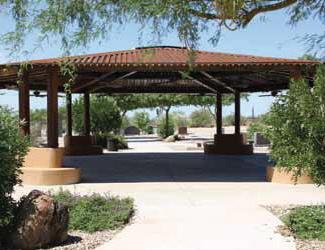
SHANNON LEVITT | STAFF WRITER
After Arizona House Representative Michael Way from Queen Creek learned that Arizona Gov. Katie Hobbs, a Democrat, had vetoed House Bill 2867, a bill he sponsored and titled “Antisemitism in Education Act,” he took to X, the social media platform formerly known as Twitter, to express his anger.
“In her most disgraceful veto yet, Governor Hobbs struck down a bipartisan bill to stop antisemitism in Arizona schools,” the Republican posted on Tuesday, June 10.
The bill would have used the International Holocaust Remembrance Alliance’ (IHRA) definition of antisemitism and laid out a laundry list of prohibitions for public K-12 teachers and university professors in Arizona. Any teacher charged with violating one of the enumerated provisions would be open to a civil lawsuit by students and parents and would be held personally liable for any resulting damages.
Those lawsuits seemed to be the main reason for Hobbs’ veto.
Way, who is not Jewish, accused the Democratic governor of siding “with those who promote hate and hostility on campus” in opposing his “law with real teeth.”
That sentiment was not universal.
Rep. Seth Blattman (LD-9), who is Jewish and was one of a few Democrats who voted for the bill, said he respected Hobbs’ decision.
“There were thoughtful arguments presented on both sides of the discussion surrounding HB2867. I ultimately chose to support the bill, but I respect the governor’s veto,” he told Jewish News in a text.
The Anti-Defamation League Desert Region posted on X that they also “respect” Hobbs’ decision.
“Antisemitism has no place in Arizona classrooms. We support the spirit and
Palo Verde Hematology Oncology, Ltd. (dba Palo Verde Cancer Specialists) – Medical Physicist Palo Verde Hematology Oncology, Ltd. dba Palo Verde Cancer Specialists has F/T Medical Physicist position in Scottsdale, AZ. Under directn of radiatn oncolgist & lead med physicist, prvide optmal radiatn therapy treatmnts to patients; Work w/ oncolgists, radiolgists,& healthcare professnls to dvlop tailored treatmnt plans; Ensure equipmnt operatn for optmal dose distributn; Conduct dose calclatns & verificatn to ensure patient safety & efficacy; Oversee radiatn safety protocols to monitor & minimize exposure. MS (or foreign equiv) in Physics, Medical Physics, or closely reltd + Completed 2-yr (24 mo) accredited Radiation Oncology Physics Residency Program. Email resume to mkennedy@pvhomed.com, Incl Job Code PVMP-SP
intent of HB2867, but remain concerned that the current language will not produce the intended result,” the post read.
While Blattman said that he and the governor “agree that antisemitism is a growing problem and a serious issue that must be addressed,” Hobbs disagreed that HB2867 would address it.
“Unfortunately, this bill is not about antisemitism; it’s about attacking our teachers,” wrote Hobbs in a letter announcing her veto.
The bill “puts an unacceptable level of personal liability in place for our public school, community college and university educators and staff, opening them up to threats of personally costly lawsuits,” Hobbs wrote.
Before her veto, the National Council of Jewish Women of Arizona (NCJW AZ) sent out an email to its members asking them to contact Hobbs and urge her to veto the legislation.
While NCJW AZ agreed that the “alleged” goal of the bill was “laudable,” it “extends personal legal liability to Arizona teachers, which could devastate their personal finances and professional reputations.”
Chandler High School teacher Lori Redman, who is Jewish and teaches about the Holocaust, felt “the idea behind the bill was important and something that needs to be addressed.” Yet, she also was “definitely concerned it was overly punitive towards teachers and open to abuse,” she told Jewish News in a text.
Stanley Mirvis, the Harold and Jean Grossman Chair in Jewish Studies and director of Jewish Studies at Arizona State University, sees both sides of the issue.
“As a Jewish professor, fighting antisemitism and protecting academic freedom are both important to me,” he told Jewish News in an email.
In a letter urging Hobbs to veto the legislation, Executive Director of Tucson Jewish Museum & Holocaust Center Lori Shepherd said the need to fight antisemitism and hate is clear, but “the bill’s vague language and punitive approach send a dangerous message to teachers: avoid controversy, or face a courtroom.”
Shepherd fears that teaching Holocaust history “requires confronting moral ambiguity” and “invites students to ask tough questions about the legacy of the Holocaust today — questions that often touch on the history of Zionism.” Honest discussions could easily be misconstrued and misinterpreted as “antisemitic,” inviting a lawsuit, something that would “intimidate teachers.”
“When I read the bill, I thought this is going to have a chilling effect on our number one tool for fighting antisemitism

in young people — which is Holocaust education,” she told Jewish News.
When news broke that the bill had passed through the legislature and only needed Hobbs’ signature, Shepherd received a phone call from a teacher who has taught the Holocaust for years and told her if it became law, she wouldn’t teach it again.
Since her letter to Hobbs was made public, Shepherd, who responds personally to anyone who reaches out, has received messages from an equal number of critics of her decision and supporters, including grateful teachers from all over the state.
“I believe your support of teachers, and trust in us, was significant to the governor’s veto of this dangerous bill, which would have pushed me and many other teachers out of our profession and would have stifled free discussions in our lessons,” a teacher wrote.
NCJW AZ also took issue with the IHRA definition of antisemitism, which it called “unworkable.”
The IHRA definition has drawn criticism from many quarters because most of its examples of antisemitism involve criticism of the state of Israel.
NCJW AZ quoted Kenneth Stern, the lead drafter of the definition, who has stated several times that the definition “was never intended to be a campus hate speech code.” Stern also worried that it has been used as “a blunt instrument to label anyone an antisemite.”
Arizona State Senator Mitzi Epstein of Tempe, a Democrat whose husband is Jewish, proposed an amendment to the bill that would ban the teaching of other types of discrimination, remove personal civil liability for teachers and apply the law to both public and private schools.
The Republican majority voted it down During the debate, Epstein said she had spent a month asking the bill’s supporters to supply examples of teachers who were guilty of antisemitic instruction, but received none.
Republican Rep. J.D. Mesnard of Chandler replied that he didn’t know of any examples. Although he admitted it was “a fair question to ask,” he supported the original bill but not the amendment. Way told his fellow legislators that the idea for the bill came from a constituent, Michael Goldstein, Arizona chapter director and general counsel of the Israel advocacy organization Proclaiming Justice to the Nations.
“He and his wife explained they had been studying the Islamic and antisemitic infiltration that has been happening into American schools, both at the K-12 and higher education levels, and their indoctrination of American students for many years,” Way said.
Last month, Hobbs signed legislation prohibiting unauthorized camping on school property at Arizona’s public universities and community colleges in response to pro-Palestinian encampments protesting the war in Gaza.
Blattman is interested in working with the governor “on other ways to support the Jewish community and public school teachers alike.”
In her veto letter, Hobbs said she was “committed to fighting antisemitism in all its forms,” and alluded to being at the groundbreaking for the Hilton Family Holocaust Education Center only days before, which is funded in part by the budget she signed into law. JN
For more information, or to read the bill, visit azleg.gov.
SHANNON LEVITT | STAFF WRITER
Carletta Tilousi, a member of the Havasupai Indian Tribe, was born and grew up at the bottom of the Grand Canyon in Supai Village. Nearly a quarter of a century ago, with her Arizona State University Bachelor of Science in Justice Studies, Tilousi returned to Supai Village to serve on the Havasupai Tribal Council. She’s now served seven terms, spending much of that time addressing the societal and environmental threats to her homeland and its people.
On Thursday, April 24, Tilousi spoke virtually to a Jewish audience at the invitation of Arizona Jews for Justice (AJJ), whose mission is “to collaborate and foster social justice” in Arizona.
“If we love Judaism, we work to ensure our children and grandchildren have a Jewish education. Environmentalism is not a tangential issue but is at the core of the Torah and our responsibility to ensure we leave the world better than we received it. At Arizona Jews for Justice, we want to do all we can to educate the community about how we can do less harm and do more to secure future generations,” AJJ founder Rabbi Dr. Shmuly Yanklowitz told Jewish News.
Tilousi called on the Jewish community at large to help with her efforts to protect the Havasupai Tribe’s environment, which will also preserve its cultural heritage.
She started by showing slides of Supai Village and the surrounding area, including the world-famous Havasupai Falls, which attracts up to 40,000 tourists each year, and nearby Mooney Falls.
“I collected these photos of the waterfalls over time to show people why it’s so important to protect the waters of the Grand Canyon. All of this water eventually drains down into the Colorado River and provides water into the Valley, to Las Vegas and different farming areas along the Colorado River. A lot of people rely on this water,” Tilousi said. She also showed photos of family members and children to illustrate how her people dress, pointing out the various fabrics and colors.
“The colors represent the environment, the water, the leaves, the sky. I want you to see how we live in the Canyon,” she said.
Then she moved on to the major threat of uranium mining, something her community has been trying to shut down since the 1980s. Up until a few years ago, there were 831 total uranium claims on public land from the South Rim to the North Rim, including one on top of the oldest aquifer in the state.
She talked about the high cancer rates in her tribe, the neighboring tribes of the Navajo Nation and Pueblos.
“Our tribe has been very vocal about saying

no to mining for many, many years, and part of the strategy was taking multiple trips to Washington, D.C., to voice our concerns,” she said.
The Grand Canyon Protection Act, which would ban uranium mining on a million acres of the Grand Canyon, took years to pass through Congress. But it was eventually signed by President Joe Biden, who declared those million acres a national monument.
To achieve that result took more than just Havasupai activism. Alliances with nongovernmental organizations and 12 other Arizona tribes with ancestral ties to the Grand Canyon had to be made.
“I’ve never seen 13 tribes come together for a common purpose, and the Grand Canyon was their common purpose, because a lot of us believe that the Grand Canyon is a sacred place to our people,” She said.
That historic event eliminated 600 uranium mines. Yet, under the new Trump administration, there has been no progress on closing the remaining mines and there is talk of rolling back Biden’s actions.
“As citizens of Arizona, it is not just a Havasupai issue anymore. It’s now an Arizona issue, and as long as we just sit back and not say or do anything these uranium trucks are just going to continue to be on public lands,” she said.
She asked people to consider the water in their pipes and whether it is clean and safe to drink and swim in. These are all considerations she hopes will prompt people to join her fight against uranium mining.
“The Havasupai have led this fight ever since I was a child, but now it’s everyone’s fight,” she said. “We need you all just as much as you need us to protect your waters upstream.” JN
For more information, visit arizonajewsforjustice. org.
1. An opportunity for nonprofit leaders to reach, retool, and revitalize.
2. A Piper Fellowship can be transformational for both the leader and the nonprofit organization.
Sentence: “It gave me perspective; my Piper Fellowship was life-changing.”

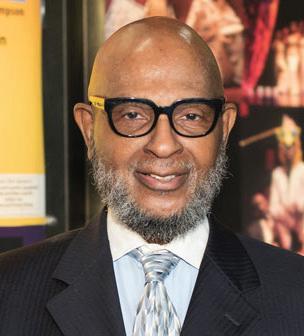
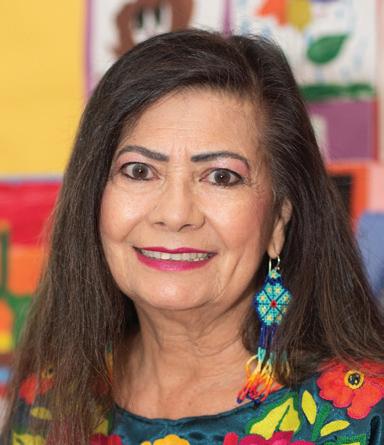
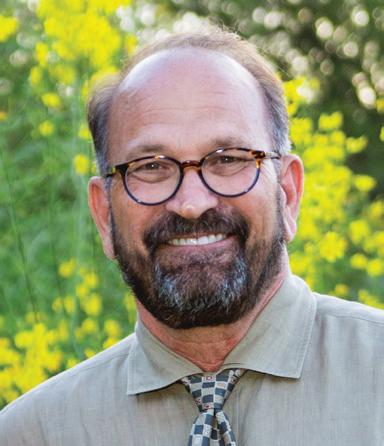



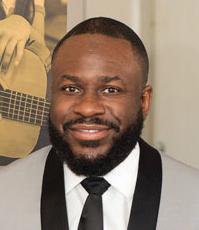
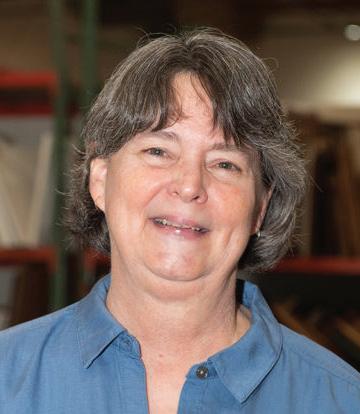


SHANNON LEVITT | STAFF WRITER
I
n June, seven leaders of Greater Phoenix’s Jewish community traveled to Washington, D.C., to lobby Congress, and the Trump administration, on the need to provide additional resources for security and the fight against antisemitism.
The “Emergency Leadership Mission” was organized by the Jewish Federations of North America and the Conference of Presidents of Major American Jewish Organizations and took place June 25-26. Nearly 100 Jewish communities and more than 30 Jewish organizations sent representatives.
“At a time of rising antisemitism and escalating threats to Jewish life, it was essential that Greater Phoenix be represented on the mission. Our presence demonstrated the Phoenix Jewish community’s deep commitment to standing in solidarity with Jewish communities nationwide, advocating directly to federal leaders and ensuring that the safety and security of our people remains a national priority,” Center for Jewish Philanthropy of Greater Phoenix CEO, Richard Kasper, told Jewish News in an email.
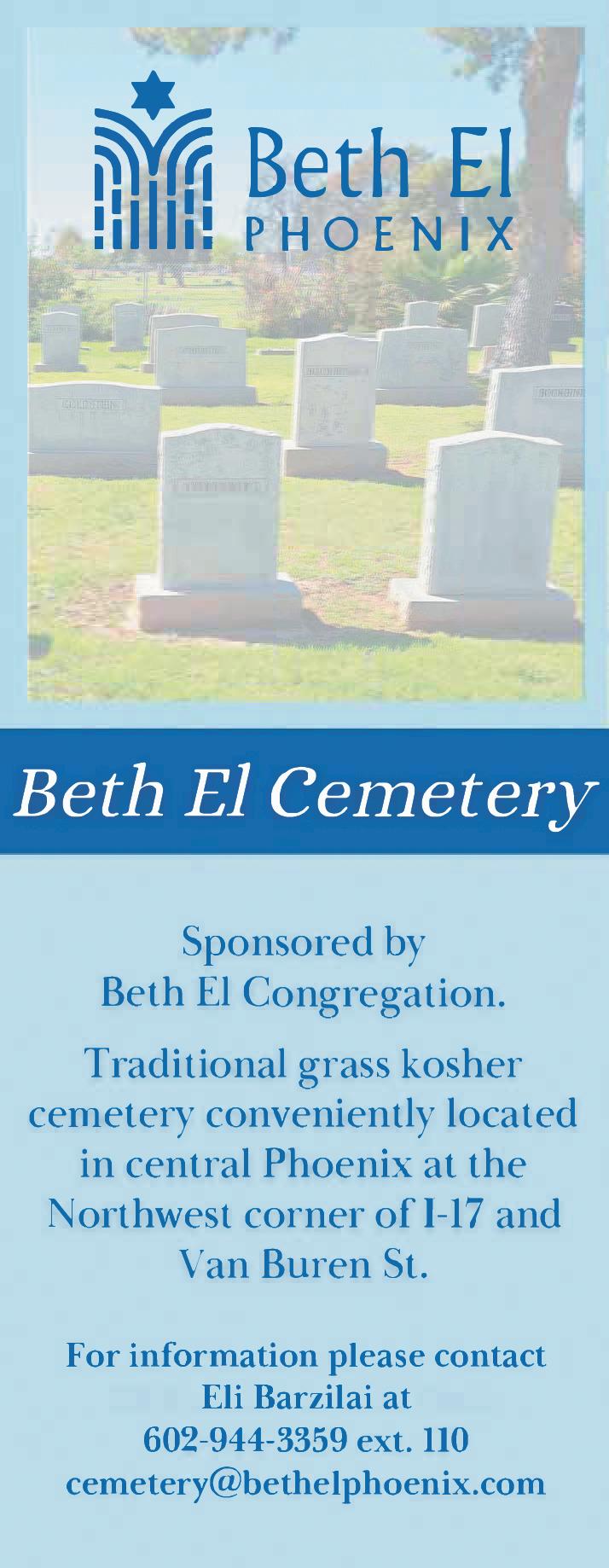
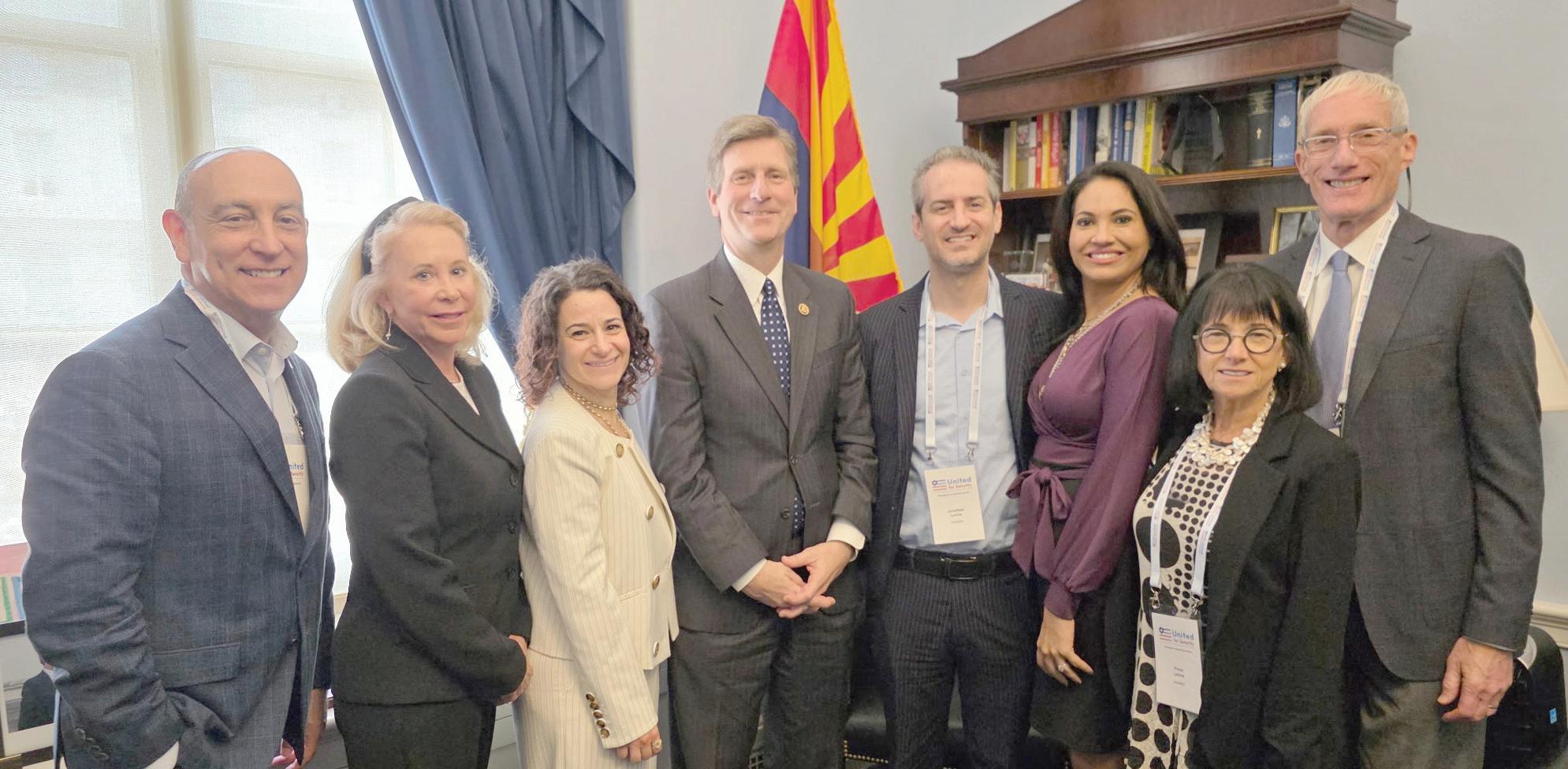
the Conference of Presidents of Major American Jewish Organizations, William C. Daroff, said in a press release.
With seven people, the Valley cohort was one of the largest in the group. Three Jewish leaders from Southern Arizona also took part.
The mission participants came to D.C. with six specific requests: increasing the Nonprofit Security Grant Program (NSGP) to $1 billion annually; providing federal support for security personnel costs; expanding FBI resources to fight the domestic and global war on terror; providing federal assistance to local law enforcement to protect Jewish institutions; regulating social media hate speech and incitement of violence; and enforcing and prosecuting existing hate crime legislation.
“We are facing an unprecedented situation in American Jewish history where every Jewish institution and event is a potential target for antisemitic violence. Our Jewish communities and our local law enforcement partners are bearing extraordinary costs to secure our community and enable us to exercise our basic right to gather as Americans for religious and cultural activities. This is domestic terrorism, plain and simple, and defeating this campaign of terror is the responsibility of the government,” President and CEO of the Jewish Federations of North America, Eric Fingerhut, said in a press release.
“American Jews are not bystanders to global terror and domestic extremism. We are deliberate targets,” CEO of
The mission happened in the weeks following the firebombing of a Boulder, Colorado, demonstration for Israeli hostages and the murder of two employees of the Israeli embassy outside the Capital Jewish Museum in Washington D.C. In addition to the legislative meetings, Jewish participants met virtually with the parents of Sarah Milgram, one of the two Israeli embassy staffers killed.
Pnina Levine, Anti-Defamation League (ADL) Desert Region board member, was part of the Valley delegation. She called the entire experience “both powerful and deeply meaningful.”
In addition to spending time with her grandchildren, who live in D.C., Levine said she enjoyed doing public advocacy, something she hasn’t done much of since the 1990s.
“We spoke in a unified voice about security, which is important at this tumultuous time,” she told Jewish News.
“When I was growing up, going to shul and my Jewish day school, the idea of armed guards was unimaginable but now it’s a given. That’s heartbreaking,” she said.
On Friday, June 27, the Department of Homeland Security announced it would award $94 million in security grants to 512 Jewish organizations, citing the recent string of violence against Jewish groups. These funds will “help protect Jewish faith-based institutions from further attacks,” read the announcement.
This sum amounts to around half of the funding still tied up from a Trump administration review of federal spending. The funding, which the Federal Emergency Management Agency distributes through the NSGP, was expected to include the full $220 million that has been allocated but not yet released to recipients.
NSGP provides funding for faithbased institutions, including synagogues, schools and Jewish community centers, to cover the costs of security measures that protect their buildings from attack. Last month, FEMA lifted the Trump administration’s two-months long freeze on funding reimbursements.
“This announcement is an important step forward in protecting Jewish communities, but this is just a start. Last week, leaders from over 100 Jewish communities came to Washington to press the government to advance our six-point security policy plan to secure the Jewish community. It’s the government’s job to keep its citizens safe. We look forward to many steps to accomplish this goal, including the release of remaining supplemental security funding released to meet the urgent needs on the ground,” Fingerhut told Jewish News in an email. JN
The Jewish Telegraphic Agency reporting contributed to this article.
Jewish News is published by the Jewish Community Foundation of Greater Phoenix, a component of the Center for Jewish Philanthropy of Greater Phoenix.
SHANNON LEVITT | STAFF WRITER
Dr. Jordan Weinberg, a professor of surgery at Creighton University School of Medicine-Phoenix Regional Campus, led Stop the Bleed training classes at the Ina Levine Jewish Community Campus in Scottsdale on two consecutive nights near the end of June. Both nights were filled to capacity.
“I was excited to hear that the training filled up quickly,” Weinberg told Jewish News.
Weinberg, who also serves as the trauma medical director at St. Joseph’s Hospital and Medical Center, has a long history with the American College of Surgeon’s (ACS) Stop the Bleed program and is a big believer in the training’s efficacy.
“The training is simple, but can be critical if many people are badly injured in an attack,” he told Jewish News.
An increasing number of mass shooting events in recent years, specifically at Sandy Hook Elementary School in 2012, inspired action by public safety organizations, including law enforcement, fire/ rescue, EMS and trauma care professionals, who formed the Hartford Consensus Joint Committee.
The goal was to create a national policy to enhance survival rates in mass casualty events. The Hartford group, along with ACS, created the Stop the Bleed campaign to teach techniques of bleeding control to laypeople who may be bystanders to life-threatening hemorrhaging.
People who might otherwise survive their injuries often die from uncontrolled bleeding before being attended to, and ordinary people are generally afraid to act due to lack of knowledge and fear of causing more harm, Weinberg explained.
In a 2019 survey published by The American Journal of Surgery, Stop the Bleed training “increased participant willingness and preparedness to respond to a stranger with severe bleeding.”
Part of ACS’ mission is to advocate for Stop the Bleed training in every facet of a given community.
“We go all over the community doing this training for anyone who wants it,” he said.
Before the COVID-19 pandemic, Weinberg led the training at the Valley of the Sun Jewish Community Center, which had received grant money to buy bleed control kits with wound-packing materials that contain anti-bleeding properties and tourniquetes.
At that time, he also trained the security staff to become certified trainers, so that they could continue to train new security staff members.
“After Oct. 7, I felt a need to offer this to the Phoenix Jewish community,” Weinberg said.
Following the Oct. 7, 2023, attack on Israel, anti-Jewish hate crimes in the United States soared to the highest number on record, according to the FBI.
Though Weinberg is secular, “I have a strong Jewish identity and connection to Israel,” he said.
He reached out to the Center for Jewish Philanthropy of Greater Phoenix (CJP) to offer Stop the Bleed training for the Jewish community.
“Dr. Weinberg contacted us and offered to administer this training to the community, and we agreed because it’s a great opportunity to educate and certify the staff of our community organizations in life-saving medical techniques,” CJP CEO Richard Kasper told Jewish News.
Weinberg didn’t ask that the training be exclusive to the Jewish community, but he wanted to work with CJP specifically because he believed “it’s really important that our centers of gathering, be they synagogues or community centers, are being targeted more than usual and we should be prepared for this.”
“As part of CJP’s Community Security Initiative, we offer free training classes for community organizations, both Jewish and non-Jewish, across the Valley,” Kasper said.
CJP also works to foster relationships with non-Jewish organizations to strengthen the Jewish community’s security.
The training usually lasts about an hour and includes a PowerPoint presentation that covers the basics. There is also a hands-on portion where everyone in the class has the opportunity to demonstrate their knowledge of how to pack a wound and put on a tourniquet, using a fake human leg with a simulated wound.
Weinberg is also the chair of Arizona’s ACS chapter and works with the state legislature on legislation mandating Stop the Bleed training and providing kits in public schools.
Arizona has legislation, specifically SB1428, establishing a Stop the Bleed pilot program within the Department of Health Services. Beginning in the 20252026 school year, school districts can voluntarily participate in the program, which includes placing bleed control kits in accessible locations and incorporating them into safety plans.
“Being prepared can mean the difference between life and death,” Weinberg said. “This is why it is crucial for adults and adolescents alike to learn the techniques of Stop the Bleed.” JN
Jewish
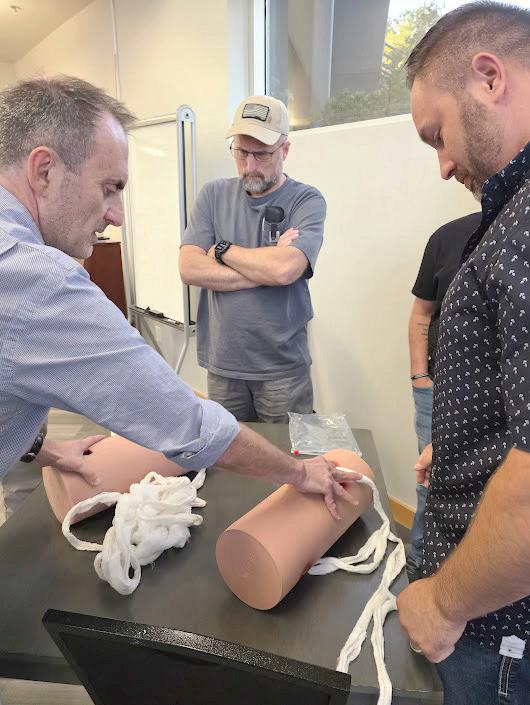
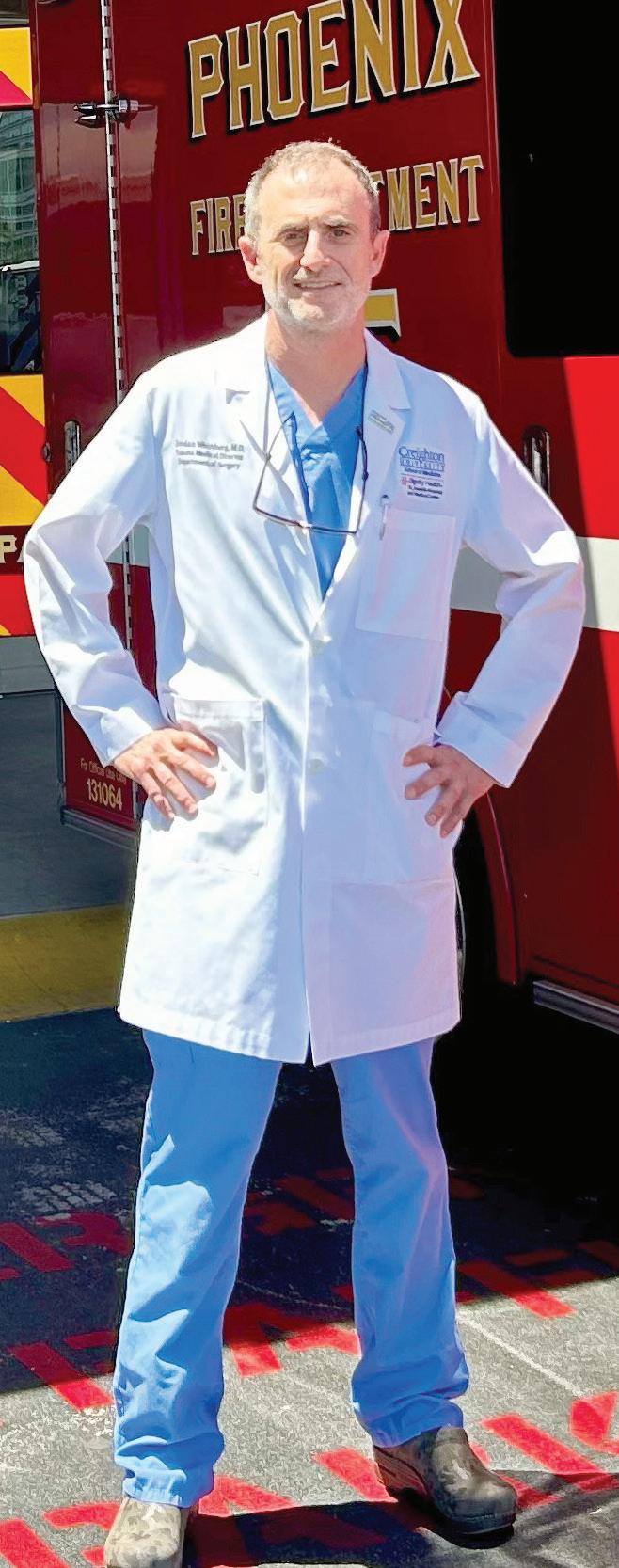

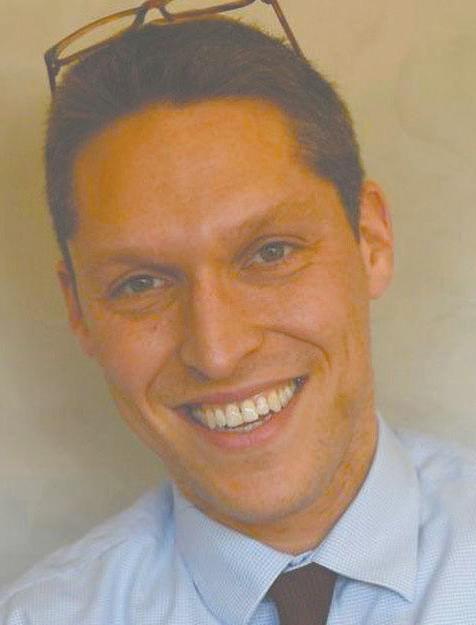
What is the essence of Jewish service? A famous midrash (found in the introduction to the aggadic compilation Ein Yaakov) asks: “What is the most important verse in all of the Torah?” Ben Zoma said, “We found a verse which is all inclusive, Shema Yisrael, Hashem Elokeinu, Hashem Ekhad” (Deuteronomy 6:4). This seems like an obvious choice since at our core, Jews are monotheists. Then Ben Nannas said, “We found a verse which is all inclusive, V’Ahavta l’Reakha k’Mokha” (Leviticus 19:18). This may seem most correct since at the center of Judaism is ethics.
Another approach said, Tzelem Elokim, that we are created in the image of God.
This wisely seems to combine the first two approaches affirming Divinity and extending our ethical commitments from that theology. But, then finally, Ben Pazai said, “We found a verse which is all inclusive: This is what you shall offer upon the Altar: Two sheep within their first year every day continually” (Exodus 29:38). What on earth does this mean? How is this the central message of Judaism?
In this week’s Torah portion, Parshah Pinchas, we learn about the korban tamid, the daily offering. One of the foremost lessons throughout the Torah and Jewish tradition generally is the responsibility for us to sacrifice something for the greater well-being of society. From a modern perspective, we often think of sacrifices as minor inconveniences to be overcome through sheer will or circumstance. As a society, we have become partially inoculated against acknowledging the sacrifices of others in our daily routines. How often do we walk by workers struggling through two jobs to support their families? How often do we acknowledge the plights
of the vulnerable, if we see them at all? How many children (even as adults) fail to see how much their parents sacrificed for them?
As we can discern from the text, we are to bring forth our daily sacrifice. On the surface, this material seems extremely dry and overly didactic. But in between the lines is a remarkable observation about human nature, namely the need to go beyond the mundanity of everyday experiences to imbue holiness into every activity we do. Each day, we must ask, “How will I serve my fellow person?”
With all of my own needs, my workplace needs, my family needs, my friend’s needs, my community’s needs, my society’s needs, what will I do to give myself over to being a force for righteousness and goodness?
That is the essence of Judaism: To live a life of service toward others and toward the ultimate Other.
The Scottish philosopher Thomas Carlyle said that, “Our grand business is, not to see what lies dimly at a distance, but to do what lies clearly at hand.” With this maxim, Carlyle indeed may have (unwittingly) encapsulated
a core message of Judaism: that theological beliefs and ethical principles are worthless if we don’t live them each day. Each day, we must put our beliefs and principles into practice and live a life of service. Every day, we are given the opportunity to sacrifice something that we hold dear so that, perhaps, someone will be given the chance to thrive. This is not to be a sorrow-filled sacrifice but a joy-filled service.
This isn’t a call to judgement, but a clarion call to consistent action! When we take the time to give back, to bring forth good deeds that bring joy to others who are suffering, we gain so much in terms of a spiritual reward; it doesn’t take much. And indeed, through simple reciprocity and giving back, and through the cultivation of inner joy, we recommit ourselves to a never-ending path of love, kindness and justice. JN
LORI SHEPHERD | ARIZONA JEWISH POST
Each year, the Association of Holocaust Organizations, an international network of more than 130 organizations, hosts a summer conference devoted to the advancement of Holocaust education, remembrance and research. Tucson Jewish Museum & Holocaust Center is a proud member of this group of educators, scholars and leaders.
This year’s conference was held in Toronto, Ontario, and I was honored to be there for this three-day intensive conference hosted by the Toronto Holocaust Museum, the Azrieli Foundation and Liberation 75. Our sessions put us in conversation with museum directors and educators from across Canada and brought us to the Royal Ontario Museum to tour “Auschwitz: Not Long Ago, Not Far Away” with the exhibit designers, historians and experts behind the creation of this amazing traveling exhibit.
But I can say with certainty that for the majority of those in attendance, the most important session was a special convening: Holocaust Education in the Wake of October 7th. In this session, introduced and co-moderated by my friend and col-
We are a
league Talli Dippold, panelists from leading Holocaust education programs discussed the challenges faced in the wake of October 7th.
Talli, who is the newly-named CEO of the Hilton Family Holocaust Education Center in Phoenix, opened with these words, “I want to begin by acknowledging the weight many of us carry into this room — personally, professionally and communally. October 7 was not just a geopolitical rupture — it was a rupture in Jewish life, Jewish safety and in how we teach the Holocaust.”
She said the work of Holocaust education has never been harder — or more important. Those words resonated with those of us who work in communities that see and understand the rise of antisemitism, trauma, disinformation and fractured discourse firsthand. It has made our work as educators, researchers and institutional leaders more challenging and more personal.
It was empowering to be together in community with so many others who face the same challenges and are navigating the same shifting sands. And it helped to see a shared trepidation as we discussed shouldering the
responsibility of telling a Jewish story of then and now to a largely non-Jewish audience.
Talli reminded us that much has changed in the last 600-plus days, often leaving us with more questions than answers:
• How do we remain focused on teaching the history and memory of the Holocaust when antisemitism and Jewish hate are so prevalent and in the moment?
• How do we preserve complexity and foster critical thinking in an age that seems to demand binaries?
• How do we center the story of Holocaust victims and survivors when current suffering is still ongoing?
• How do we support students and educators as they navigate these important lessons of the past and apply them to their own contemporary lives?
None of these are easy questions, and many of us left that session without the answers that we had hoped to find. But what we did come away with is a renewed sense of mission and purpose, knowing that we are not alone: our colleagues and a vast network of professionals stand with us and support us
as we continue a work that honors both past and present as it helps forge a better future. I was reminded this week by a very wise young person (my child) that those without vision lose their path. At Tucson Jewish Museum & Holocaust Center, our mission is our true north, and we will continue the work of educating about the Holocaust and other genocides, exploring the legacy of Jewish experiences in Southern Arizona and collaborating with Tucson’s diverse community to promote human rights. We will do this with thoughtful, inclusive, and historically grounded dialogue. We will do this by remaining true to the survivors we serve and the educators we support. And we will do this by holding steadfast to the values of remembrance (zachor), justice (tzedek), honor (khavod), community (kehillah) and learning (limmud). And we will do this in community with all of those who share these values and recognize the importance of this work. JN
Lori Shepherd is the executive director of the Tucson Jewish Museum & Holocaust Center. This piece originally appeared on AZJewishPost.com.
and should be a maximum of 200 words. They may be edited for space and clarity. Unsigned letters will not be
SHANNON LEVITT | STAFF WRITER
Hava Tirosh-Samuelson stood before a room full of colleagues and friends on Wednesday, May 14, to give her final speech as the director of Arizona State University’s (ASU) Jewish Studies department, though she was careful to clarify it was not a retirement party — “The earliest I may retire will be in May 2026, albeit without a party,” she quipped.
After 17 years, Tirosh-Samuelson is “passing the baton” of leadership to Stanley Mirvis, the Harold and Jean Grossman Chair in Jewish Studies. She remains an ASU Regents Professor and Irving and Miriam Lowe Professor of Modern Judaism and will spend the next year on a research leave and finishing her latest book.
Her mid-May speech was not like any of the scores of public scholarly lectures she’s given over the decades since earning her doctorate from Hebrew University 47 years ago. After all, she was talking to people who had come to celebrate her many accomplishments in her time at the helm of Jewish Studies.
“Hava was tireless in her efforts to continually strengthen the Jewish Studies program so our students would be the beneficiaries. That strength also enabled the broader world to learn from the important scholarship being produced by Hava and her colleagues,” ASU Provost Emeritus Mark Searle told Jewish News in an email.
“Jewish Studies flourished under Hava’s long leadership,” ASU Dean of Humanities Jeffrey J. Cohen told Jewish News in an email.
Ironically, as much as she’s done as director of Jewish Studies, and as many plaudits as she’s received for her work, Tirosh-Samuelson didn’t set out to get
the director job. When the previous director left in 2004, she served on the search committee to replace him. For three years, the position remained unfilled. In 2008, ASU’s administration asked her to accept the job.
She was clear from the start that her goal was to make Jewish Studies a firstrate program, similar to the one at the University of Indiana, where she taught before she and her late husband, Professor Norbert Samuelson, moved to Tempe to teach at ASU in 1999. She would be satisfied with nothing less.
When she was interviewed for the position, she told ASU administrators: “This is where Jewish Studies at ASU is now; this is where it needs to be; and this is how we are going to get there.”
“I had a very clear vision about Jewish Studies,” Tirosh-Samuelson told Jewish News.
The same year she became the director of Jewish Studies, Tirosh-Samuleson, Norbert Samuelson and Professor Elliot Dorff (American Jewish University) established the Judaism, Science and Medicine Group (JSMG), an international organization of scientists, Judaica scholars, philosophers, theologians, physicians, rabbis and educators who work together to promote a relationship between Judaism and science.
“JSMG has been the most distinctive activity of ASU Jewish Studies of which I’m most proud,” she said.
This project originated from her involvement in the academic field of religion and science, which emerged in the 1960s. Since science and religion are the two primary sources of truth, “for the pursuit of truth to be intellectually
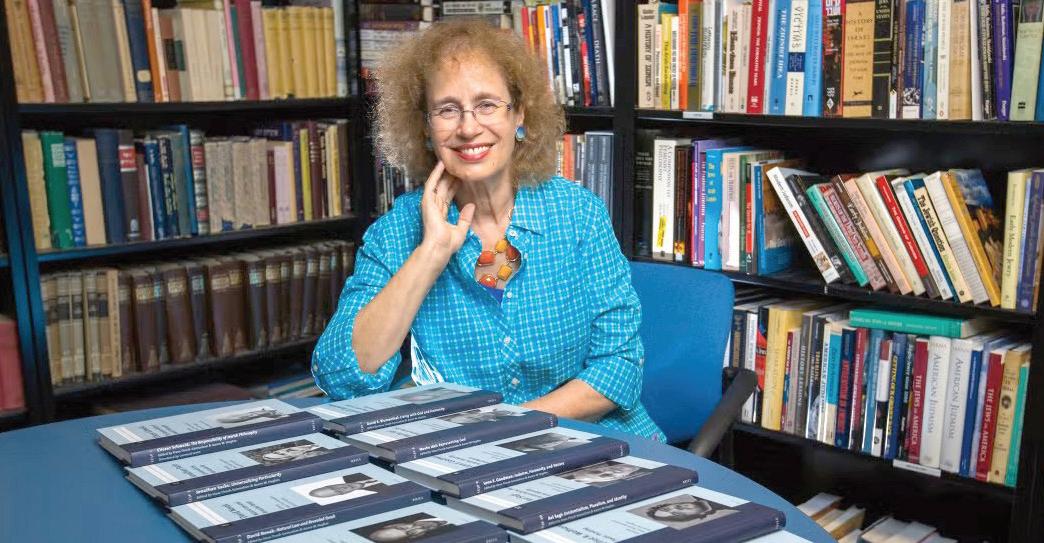
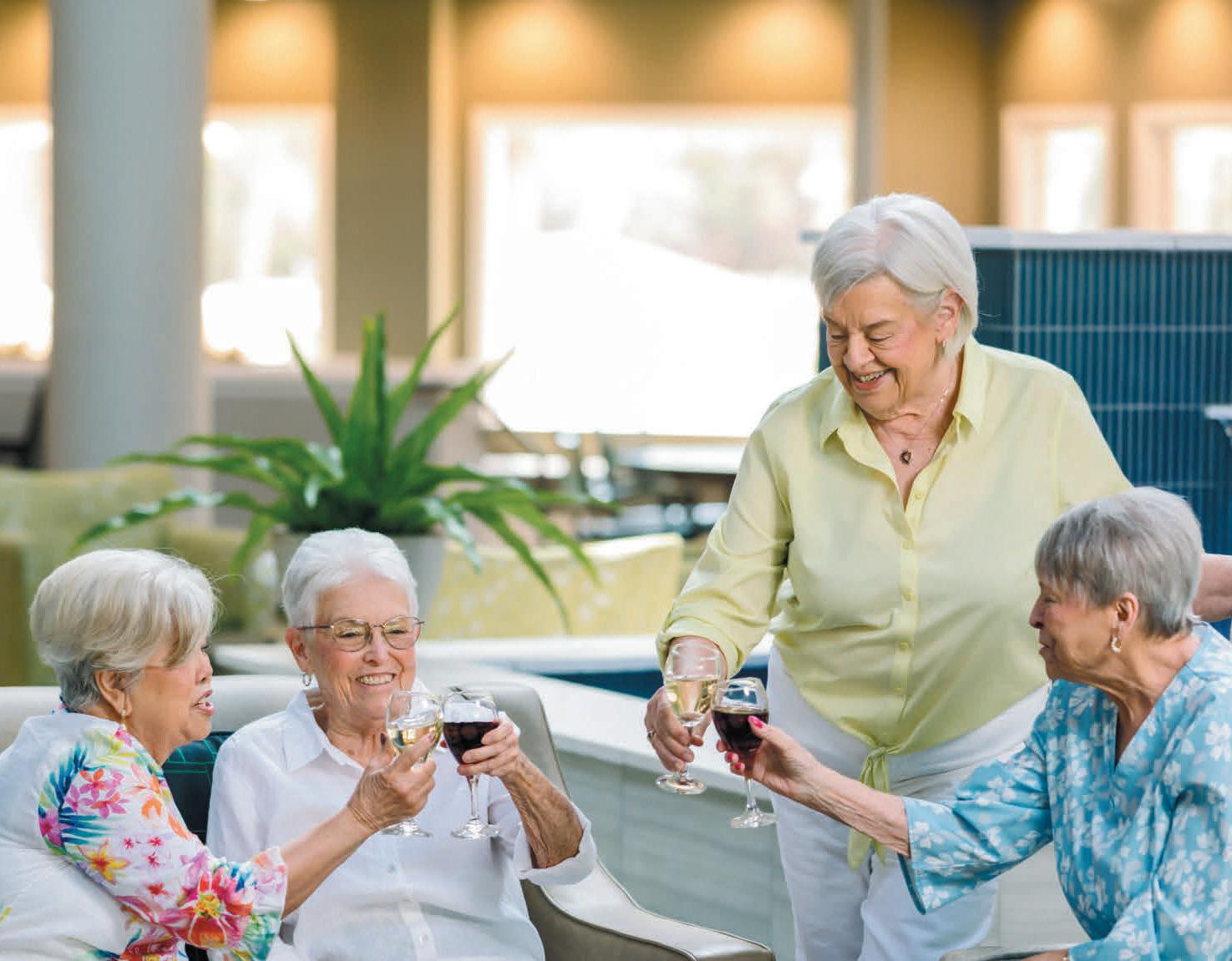
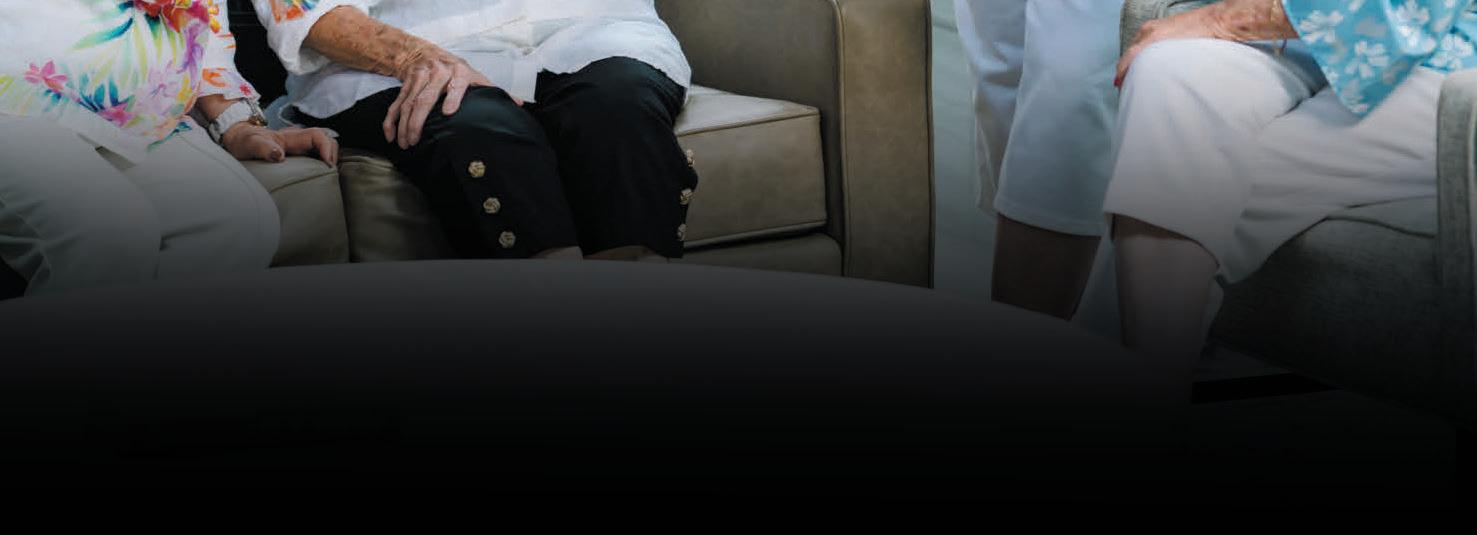

complete, it must engage both,” she said.
Medicine is also relevant because it is where tensions between science and religion become most acute, such as with end-of-life issues, biotechnology, in vitro fertilization, etc.
“Most of the ‘big questions’ manifest themselves in medicine,” she said.
Every year since its establishment, Tirosh-Samuelson has organized the group’s annual conference, which consistently seeks to bridge the gap between academia and society.
“Our conferences are unusual because they are not just about academics talking to other academics. In our conferences, academics are talking to people in the community. Scientists talk to humanists, Orthodox Jews talk to secular Jews and so on,” she said.
Tirosh-Samuelson is a big believer in an interdisciplinary and pluralistic approach to learning, and this is a key example of it. She said there is always a lot of sharing of knowledge among the participants with a “celebratory” feel.
“In a JSMG conference, one does not have to play an academic game but simply share one’s knowledge and expertise,” she said.
Another of her proudest achievements
is the creation of the Center for Jewish Studies, an outward-looking and selfstanding entity designed to offer the broader Jewish community a taste of Jewish scholarship.
The center is a microcosm of an interdisciplinary approach, designed to be a cluster of affiliated faculties, professors and scholars from across the university, all working towards the goal of “engaging the larger community, producing and disseminating knowledge and becoming an agent of cultural change,” TiroshSamuelson said.
In any given year, the center offers up to 25 events — open to the public — including lecture series, research conferences, workshops, art exhibits and even musical performances.
“The goal is to generate interest in all things Jewish. The center is an intellectual hub for engaging Jewish culture, religion and history,” Tirosh-Samuelson said.
While she was still at Indiana University, she gave a speech arguing that “the task of the Jewish studies scholar is to serve the community; we are in the job of sharing our scholarship with all people.” She said that opinion upset some people at the time, while others celebrated it.
“In the long run, I think most people today would agree with me,” she said. The response she’s received from the
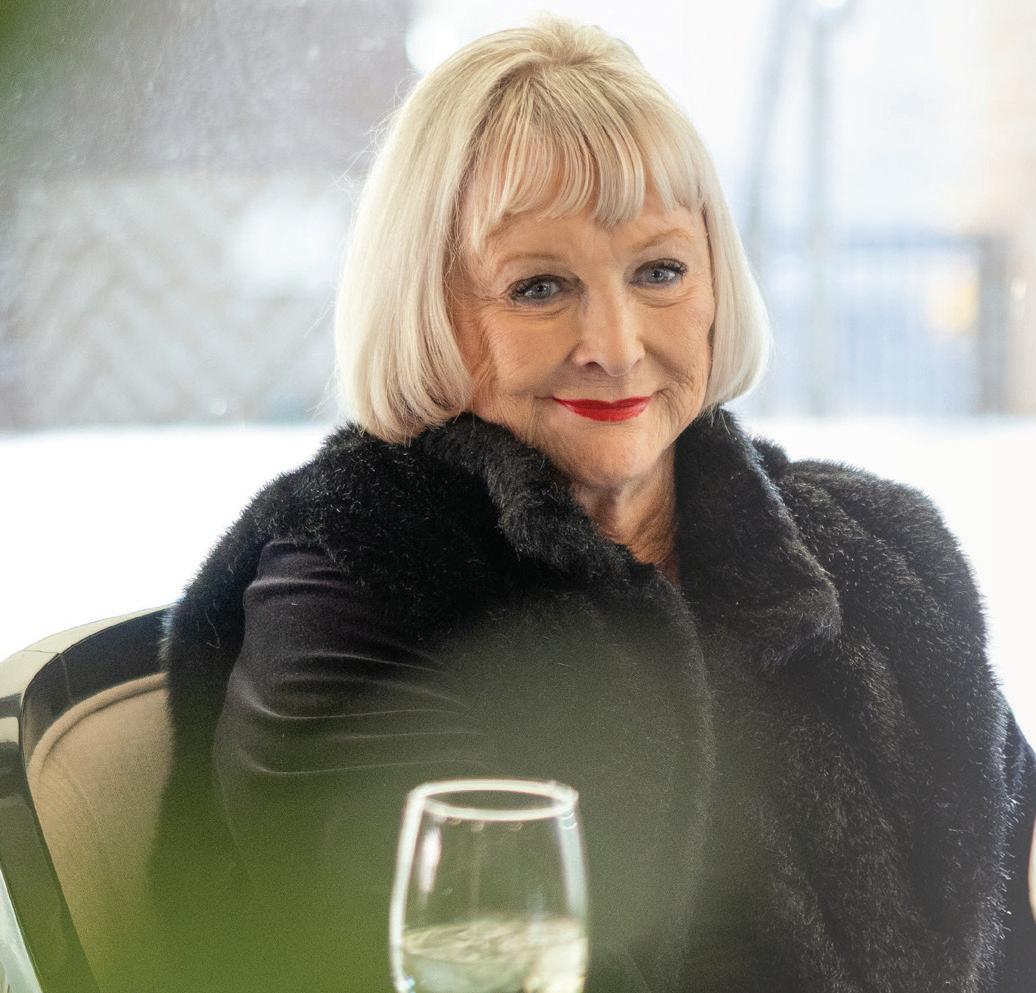
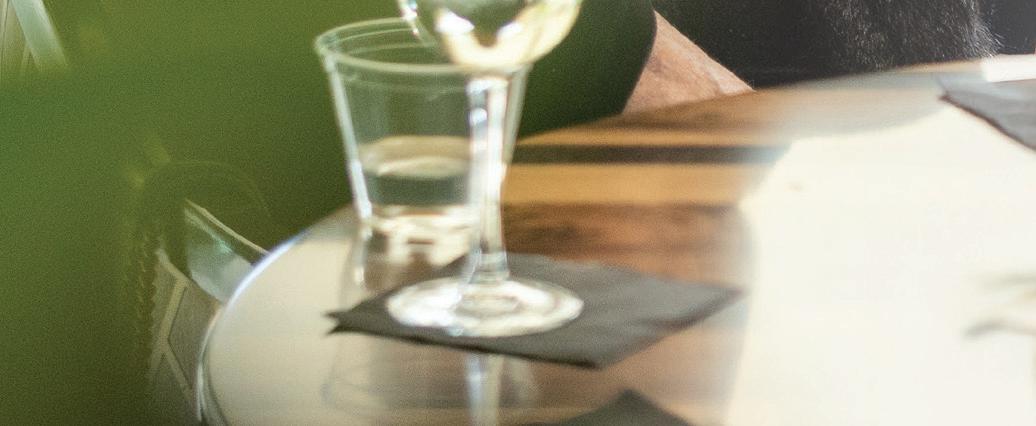

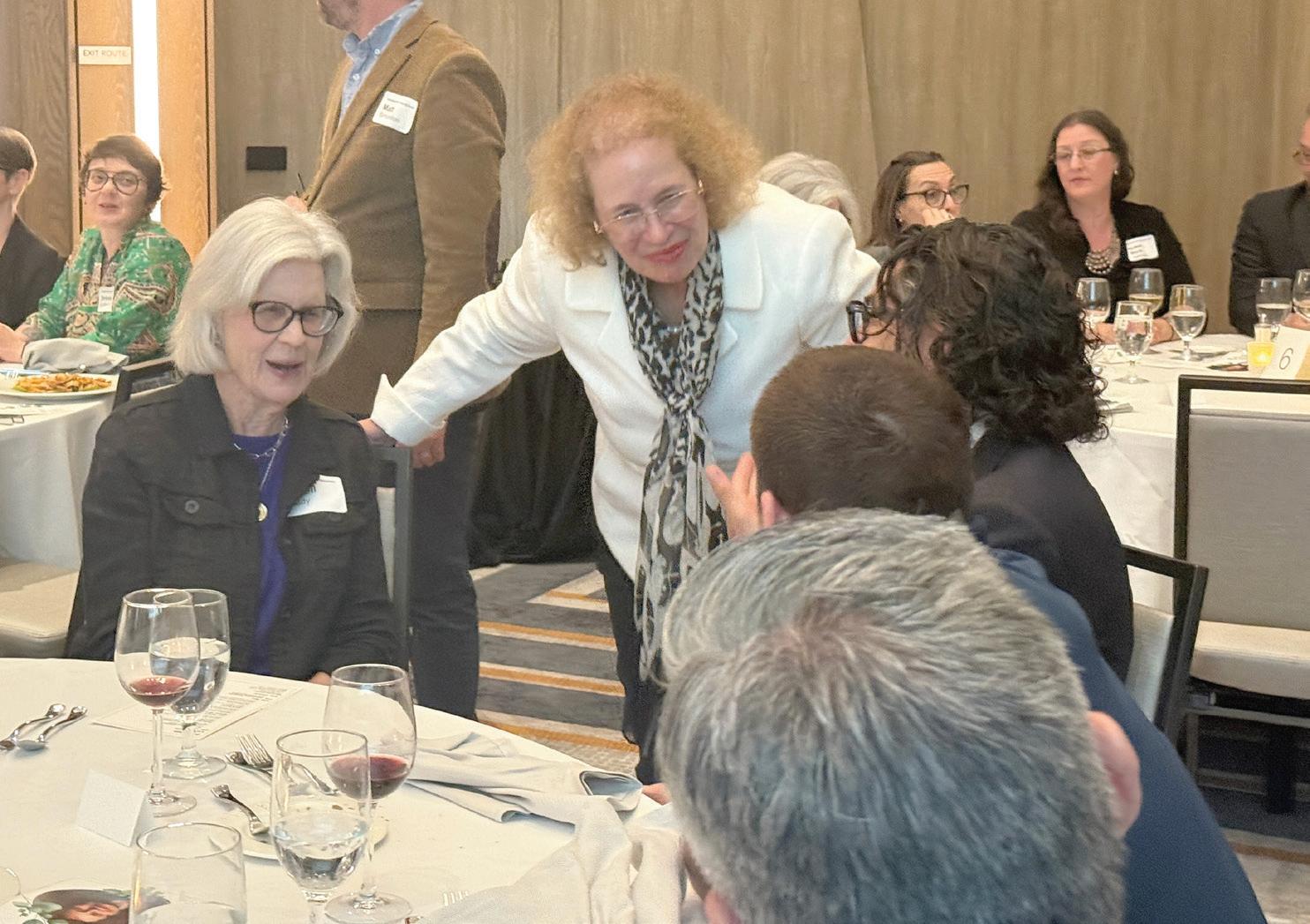
community beyond ASU, both Jewish and non-Jewish, has been widely positive. “People love public-facing scholarship because they learned a lot and had access to knowledge they wouldn’t have otherwise.”
Cohen said Tirosh-Samuelson often talked of bringing learning to as many people as possible using a “rigorous and
humane” approach.
Searle admired the time she put into “extending the reach of Jewish Studies into the community, so the intellectual breadth and depth of the program could be shared more broadly.”
“Under Hava’s visionary leadership, ASU Jewish Studies has brilliantly nur-
We understand that the cost of senior living may not always be clear – but we’re here to change that. At Clarendale Arcadia, we believe in complete transparency –so you’ll always know exactly what you pay for.
No hidden fees. No unexpected costs. Just straightforward pricing that makes it easier for you and your family to Redefine Ready and make the most informed decisions about the future.
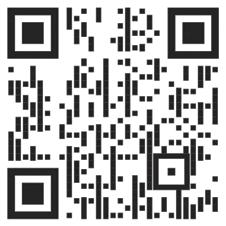

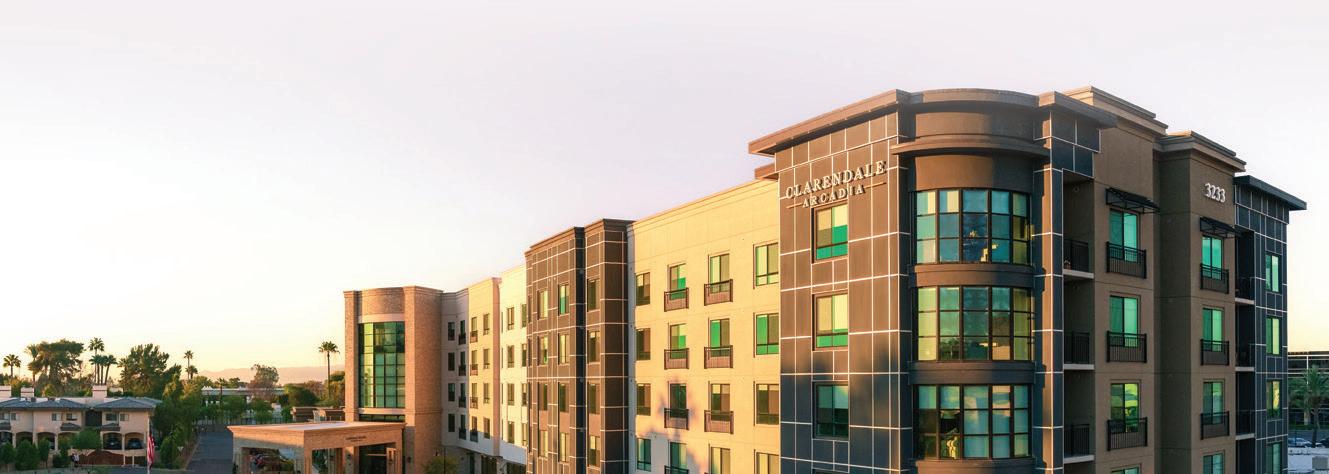
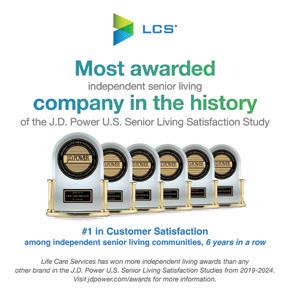
BOB ROTH | COLUMNIST
In today’s rapidly evolving world, headlines often focus on artificial intelligence, automation and labor shortages. Yet, one of the most overlooked and underutilized resources is right in front of us: older adults. Across nearly every industry, businesses are struggling to find reliable, trustworthy and service-oriented individuals. Whether it’s in home care, hospitality or retail, the need for a dependable and passionate workforce has never been greater. While there’s no doubt that technology has transformed how we work, there’s a human touch that machines can’t replicate; empathy, lived experience and a sense of purpose. And that’s where our older population shines.
As someone who has worked in the home care industry for over 20 years, I’ve seen firsthand how older workers, some retired from prior careers, bring immense value to caregiving roles. They are often more patient, empathetic and genuinely committed to making a difference. Their motivations are rarely about climbing the corporate ladder, they are driven by passion, purpose and connection.
Take Mary, for example. She had long since retired when she joined Cypress but continued working well into her 80s. We would match her with clients who didn’t require a lot of physical support and she was incredible, an outstanding cook, a warm companion and someone who truly brightened every home she entered.
Another caregiver, Bernie, who at nearly 60 years old cared for my own father at the end of his life. Watching her in action was a powerful reminder of just how much heart and skill our older team members bring. Her care, patience and presence meant the world to my family, and I know many others feel the same way about their caregivers. We need to rethink what it means to “retire.” Retirement was once seen as the end of one’s working life, but more and more older adults are viewing it as a transition into a new, purpose-driven phase. They want to stay engaged, contribute to their communities and maintain a sense of identity. Work, especially caregiving, offers that. Ben Lytle, in his book “The Potentialist,” talks about the transformational opportunity we have to embrace longer lives as a gift. If people are living longer and healthier lives, we must adapt how we think about education, work and purpose across the lifespan. The idea that people should stop working entirely at 65 is outdated. Instead, we should create flexible, mission-driven opportunities that align with the goals and lifestyles of older adults.
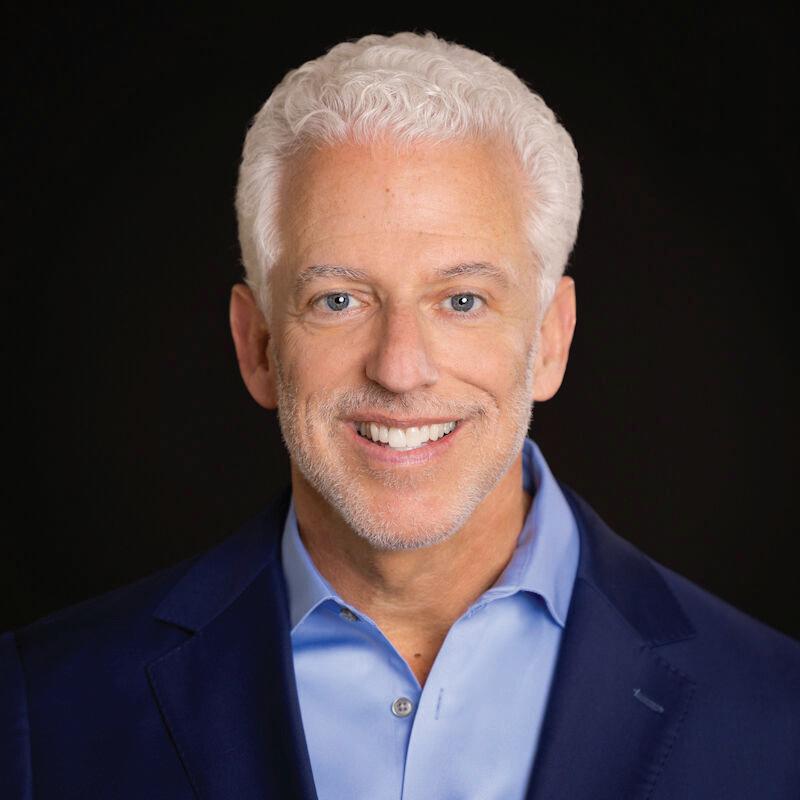
That might mean a caregiver shift that’s only four hours a day, three days a week. Or it could be a front-desk concierge position in a senior living community that allows someone to stay social and engaged. These roles don’t just benefit the worker; they uplift the entire system. Communities gain reliable team members, clients receive compassionate care and older adults feel seen, valued and needed.
We are also witnessing a societal shift where people are seeking deeper meaning in their daily lives. This includes individuals in their 60s, 70s and even 80s. Many are asking themselves, “How can I give back?” or “What can I still do that brings me joy and helps others?” The answer, in many cases, is work. Not just any work; work that allows them to share their experience, build relationships and serve a greater good.
That doesn’t mean we don’t need young people, or that technology doesn’t have its place. But it does mean we can’t afford to ignore the workforce potential of older adults. It’s time we stop thinking of age as a limitation and start seeing it as an asset.
After all, reliability, resilience and wisdom are traits cultivated over time.
As business leaders, community advocates and employers, we should embrace this opportunity. Let’s offer flexible schedules, mentorship opportunities and pathways that let older adults thrive. In doing so, we not only address labor shortages, but we also create a more inclusive, intergenerational future of work.
The future of our workforce isn’t just younger or faster, it’s wiser. It’s bright, and it’s proudly silver. Let’s stop overlooking the goldmine of experience and compassion already thriving in our communities and start building a workforce that reflects its true value. JN
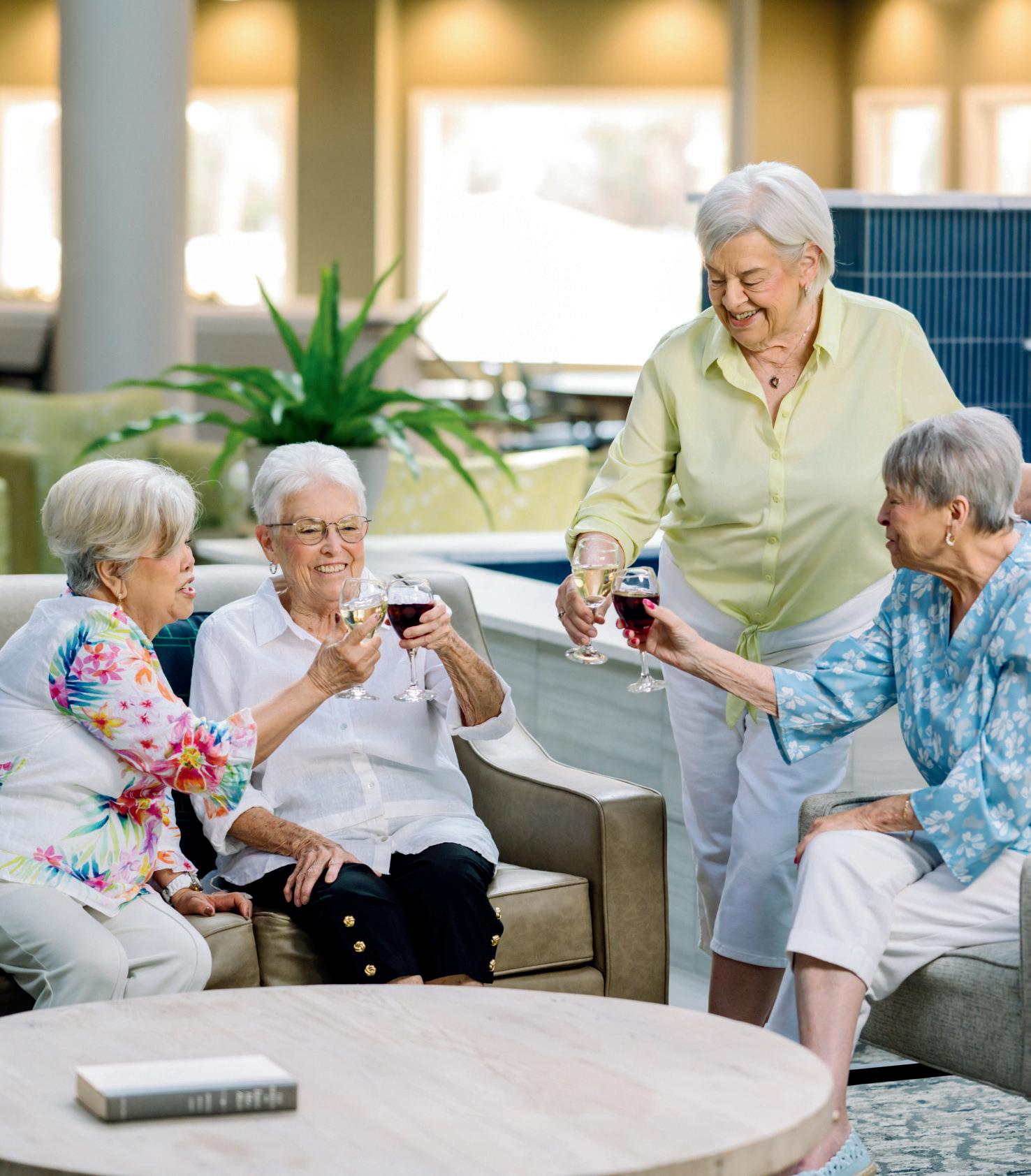



SHANNON LEVITT | STAFF WRITER
Rachel Charnick, a lifetime member of Hadassah, was recently named Hadassah West’s managing director. In her new role, she will provide administrative, operational and strategic support to 145 Hadassah chapters across 15 states, including in Arizona.
She will work with Hadassah West staff and local volunteer leaders to advance Hadassah’s mission — advocating for Israel, countering antisemitism and fundraising for women’s health and the Hadassah Medical Organization, Hadassah’s academic medical center in Jerusalem.
Charnick has already been in touch with Melissa Singer, president of Hadassah Valley of the Sun (HVOS).
“Even though Rachel’s so new in the role, she’s already been assisting me, and I feel so supported by her and her team,” Singer told Jewish News.
She is especially thankful for the support given the recent rise in antisemitism.
“All sorts of things have come up, especially lately, and Rachel and her team are always there for me,” she said.
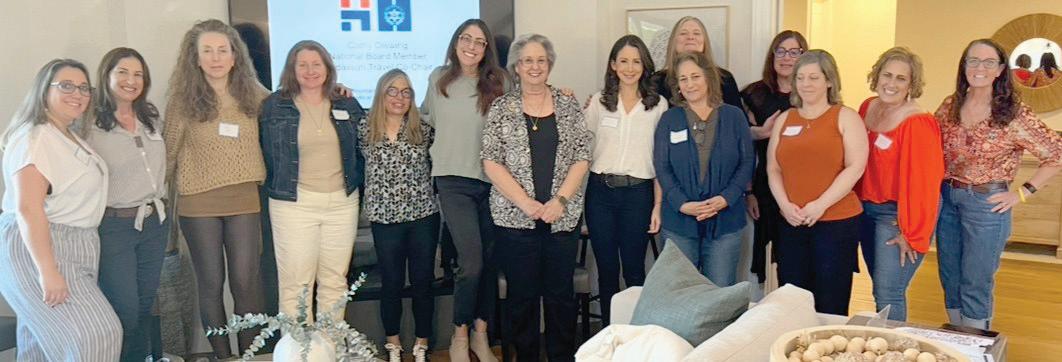
“The thing that’s so unique about Hadassah is the volunteer-staff partnership,” Charnick told Jewish News. Charnick, a staff member, praised volunteer or lay leaders like Singer.
“We couldn’t do what we do without our incredible volunteer leaders, and I’m just constantly inspired by these women. They show up, they support Hadassah, they
Embrace new friendships, new passions, new discoveries, and new freedoms. And CARF-accredited supportive care if needed.
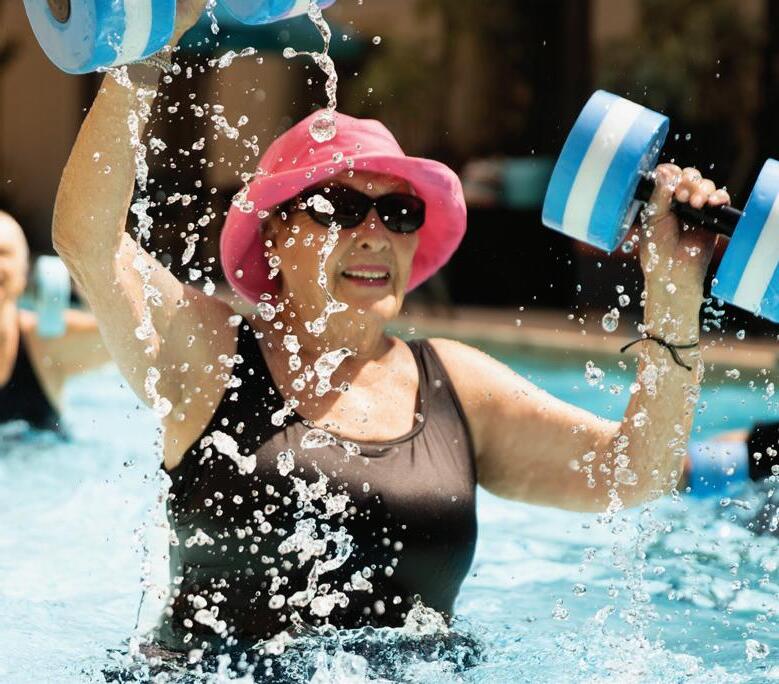


You’re invited to our Zestful Living Lunch & Learn
Wednesday, August 13th • 11:30am
Enjoy a delicious chef-prepared lunch as our Zest team shares how our wellness program nurtures a vibrant lifestyle for the mind, body, and soul. Please call 602.635.2602 to RSVP.
909 East Northern Avenue, Phoenix • 602.635.2602 LaSienaSeniorLiving.com



support Israel and it’s such a strong sense of community,” she said.
Charnick joined Hadassah’s staff in 2004 as a membership specialist. She served as northern area director for Hadassah Southern California and, most recently, associate managing director of Hadassah West.
As its new managing director, she hopes to engage more women in Hadassah’s mission.
“The strategies we use to get there — to grow Hadassah’s presence, where there’s opportunity, and revitalize chapters that may need support — are things I work on in close partnership with our regional presidents. My role is to support and collaborate with them in achieving these shared goals,” she said.
“Rachel has shown outstanding leadership during her two-plus decades with Hadassah, and it gives me great pride to promote her to this new position,” Hadassah CEO Ellen Finkelstein said in a press release. “Her deep understanding of Hadassah’s mission, along with her expertise in strategic planning, staff management and membership engagement will serve Hadassah West well.”
Like Charnick, Singer comes from a long line of Hadassah members and became a life member at the age of four.
“I was in charge of putting labels and stamps on the envelopes,” Singer laughed. Her children have grown up in Hadassah, and even her husband is involved as a Hadassah associate.
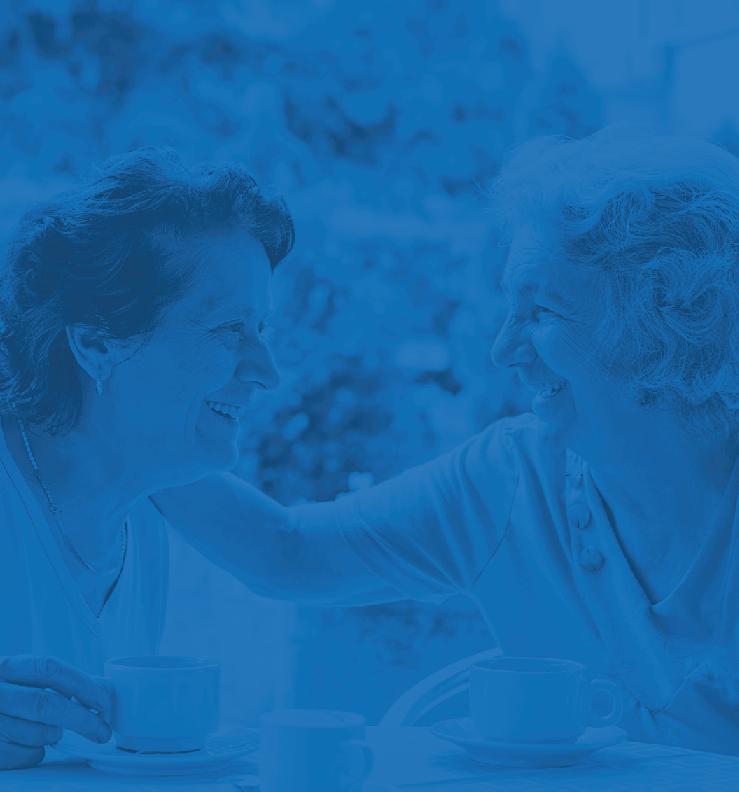
Singer has been very involved in HVOS for nearly 25 years, and is happy to report that “each and every month we are growing our membership.”
She said that before the COVID-19 pandemic shut down in-person events, HVOS membership was strong. Fortunately, it was a chapter that “actually thrived during COVID” after all activities became virtual for a time.
Other chapters were not as lucky. Chandler’s Shalom chapter, for example, had to disband due to a dwindling membership.
“Nobody knew how to Zoom, and there was a lot of apathy,” the Shalom president told Jewish News in 2021.
Several Shalom members who wanted to stay in Hadassah joined HVOS.
In part, Singer attributes the continued success of her chapter to a sense of camaraderie and long-term friendships.
“A lot of us have been friends for 25 years, or longer, and we just really enjoyed coming
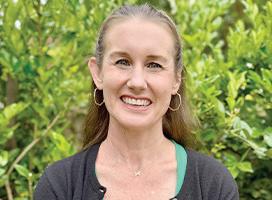
together, even on Zoom,” she said. Oct. 7 has been another catalyst driving membership.
“People want to come together and feel like they’re getting in touch with Israel and what’s going on there,” she said.
Charnick said she’s seen the same thing play out throughout Hadassah.
“Women, particularly since Oct. 7, are really looking for safe spaces to connect with other like-minded women. Hadassah is a natural place for them to go, and we welcome them with open arms,” she said.
Evolve Hadassah, the organization’s network of young women, is another factor in increasing membership. Evolve connects women under the age of 50, while still focusing on Hadassah’s overall mission.
HVOS started its Evolve Hadassah group three years ago, and it is now one of the 25 established Evolve communities in the country.
FROM PAGE 10
tured the intellectual life of Jewish learning on ASU’s campus, in our community and internationally,” Flo Eckstein told Jewish News. Eckstein is the publisher emeritus of Jewish News and worked with TiroshSamuelson on the annual Albert and Liese Eckstein Scholar-in-Residence Program.
Another significant change TiroshSamuelson made as director was establishing a bachelor’s degree program in Jewish Studies. Before she took over, students were only offered a certificate. Now, it is a degree-granting program on par with other humanities departments. She said her successor will have to continue the challenging work of drawing more students to the program.
“Hava brought a rigorous intellectual discipline to Jewish Studies that resulted in a strong degree program, the ability of ASU to attract other talented faculty members and to produce future scholars through Ph.D. programs,” Searle said. When John Liffiton, an emeritus professor at Scottsdale Community College (SCC), realized the Genocide Awareness Week (GAW), an initiative he founded and directed for nine years, had grown beyond the scope of SCC, he approached ASU about hosting it. Tirosh-Samuelson was one of the pivotal players in bringing it to campus by lining up support and donors.
Singer said the Evolve events have been very successful. In past years, her chapter had a separate group for young leaders, which really set the stage for Evolve to flourish.
“We have found that this age group really wants to get together with like-minded women. We call ourselves an awesome family of sisters,” she said. As president, Singer attends the Evolve meetings and events just as she does for the HVOS chapter.
Along with hearing from politicians and speakers about voting rights, Hadassah groups do volunteer work around women’s issues. Sometimes the activities are more geared towards building personal connections such as with painting sessions, brunch and happy hours.
“We’re having great turnouts,” Singer said. “We really are a strong community and love getting together.”
Charnick has already learned a lot about the local chapters, including HVOS.
“I’ve been lucky enough to get to know Melissa pretty well recently, and I am so impressed by what she’s doing,” she said.
While she’s not involved in the day to day business of local chapters, she is “always there to support what’s happening in Phoenix, and the great work that Melissa and others are doing.”
She’s not counting out a personal visit.
“When the time is right, I hope to get to Phoenix,” she said. JN
For more information, visit hadassah.org.
The annual event involves genocide survivors, scholars, artists and others meeting together to discuss how to understand the phenomenon of genocide and how to prevent future genocides.
“Genocide Awareness Week is not just about the Holocaust,” she said. “This event takes a comparative approach because to understand the trauma people experience in one genocide, one needs to know about other genocides.”
Last year, Tirosh-Samuelson was awarded ASU’s Gary Krahenbuhl Difference Maker Award. Of all the awards and honors she’s received over the years, this one was special because it highlighted her as a “difference maker,” something she strives to do with all her myriad undertakings.
In the next year, while she finishes her book on the topic of Jewish environmentalism, she will consider whether she is prepared to retire.
“It’s time to step down as director, but stepping down and retiring are two separate decisions,” she said.
Whatever she decides, her accomplishments stand as a testament to the difference she’s made to ASU, Jewish Studies and the wider Jewish community.
“Hava leaves a remarkable legacy,” Eckstein said. JN
For more information, visit jewishstudies.asu.edu.
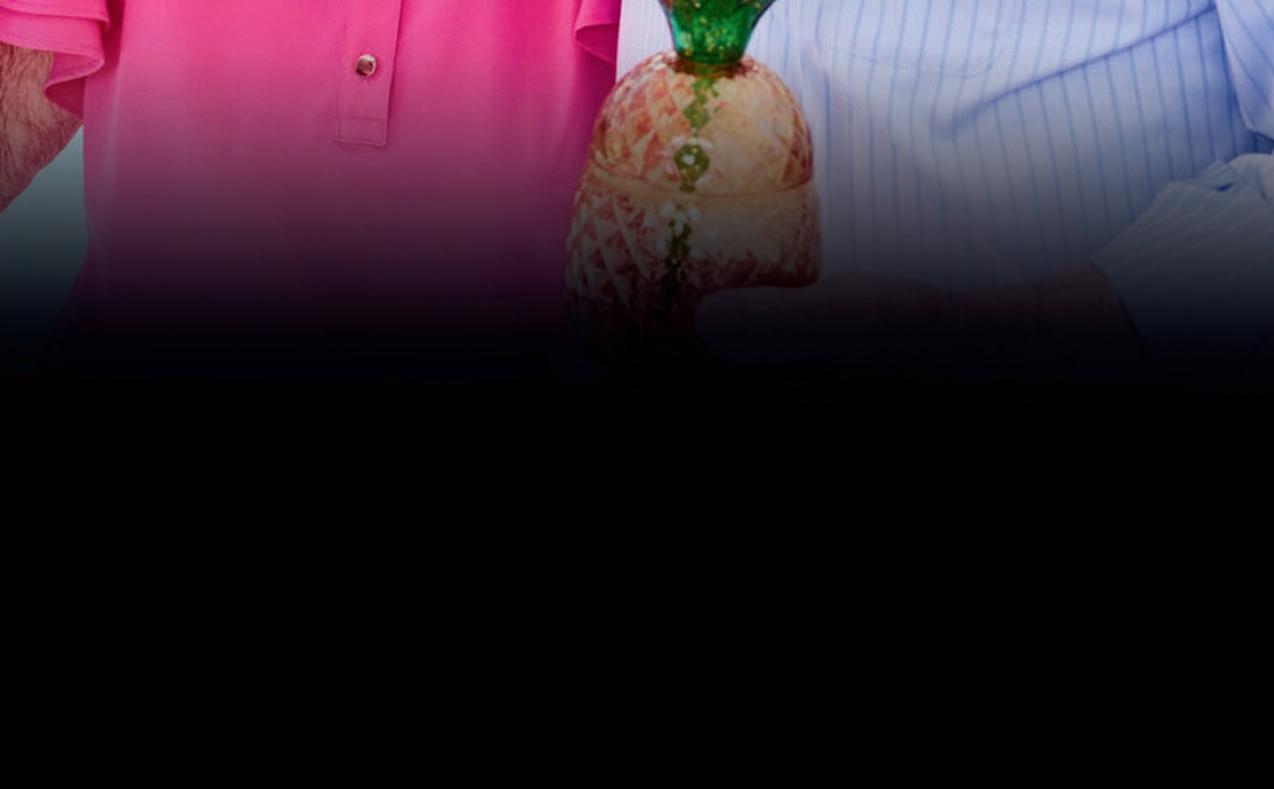


SHANNON LEVITT | STAFF WRITER
BOB ROTH | COLUMNIST
IIn May, Phoenix Hebrew Academy (PHA) middle school students, along with a few younger students enrolled in advanced placement classes, participated in the annual Center for Initiatives in Jewish Education’s (CIJE) Math Matters Competition.
Happily, several PHA students were among the competition’s highest scorers.
PHA seventh-grader Dahlia Musaev and sixth-grader Dov Nevah were both awarded perfect scores, something only three other competitors achieved.
Sixth-grader Shalom Rosen was awarded with the Distinguished Achievement award. He came very close to a perfect score, having missed only one question.
n our quest to extend life, we must not forget the profound value of the time we have right now. As we near the crest of the “Silver Tsunami,” with the 65-plus population set to double and the 85-plus population nearly quadrupling by 2050, it’s crucial to recognize that the only true currency we have is time and how we choose to spend it and with whom.
Five of the 10 Honorable Mentions were awarded to PHA fifth-graders Kobe Daskal, Yohanan Parkhurst and Devorah Twerski; and seventh-graders Tzi Barth and Robert Woods.
Many scientists today talk about time prosperity: the idea that our lifespan isn’t fixed, and that biological aging may be malleable, even reversible. Breakthroughs in fields like epigenetics (changes in gene expression that happen without changes
More than 800 students from 14 schools in the nation competed. Only 16 students, half of them from PHA, won awards.
The exam included two rounds. The first round had 18 free-response questions that had to be completed within 24 minutes. The second round consisted of complex problems to be solved in 18 minutes.
To receive an Honorable Mention meant the student advanced to the second round of the test, “demonstrating strong problem-solving skills and perseverance,” according to David Scott Seay, CIJE’s math specialist and mentor.
As soon as PHA General Studies Principal Malka Ungar received the exciting results, she called the parents of the winning students right away.
“I can’t say I was surprised. I knew our school would win because I know Mr. Nanda (PHA math teacher Surjit Singh Nanda) and the level of excellence he gets from his students,” Ungar told Jewish News.
She might not have been surprised, but she was proud, and she said the students were also proud that they’ve been challenged to achieve high levels of math proficiency.
“In order to perform well in this math competition, it was essential to ensure that the students had the required mathematical knowledge, a competitive mindset and the determination to win,” Nanda told Jewish News.
Nanda has experience with math competitions. Before joining the staff of PHA, he taught at BASIS Scottsdale, where he was the math coach for the MATHCOUNTS club for three years. In
to the DNA sequence), regenerative medicine and AI-driven health diagnostics have opened doors that once seemed impossible. Human beings have already doubled their average lifespan over the past century. The question is no longer whether we can extend life, it’s how we will live it.
Yet, while biology races forward, our culture often lags behind. We still hear expressions like “senior moment” or “over the hill,” quietly reinforcing the idea that aging equals decline. But aging isn’t the problem. Ageism is. If we are serious about building a longer, healthier, more fulfilling future, we must start with a shift in mindset: one that values age, presence and connection, not just youth and speed.
Jewish tradition has long understood the sacredness of time. Every night before bed, many Jews recite the Bedtime Shema — a prayer of reflection and protection,
entrusting one’s soul to God. And every morning, upon waking and realizing they have been given another day, they say the Modeh Ani prayer, offering simple, powerful thanks: “I give thanks before You, living and eternal King, for You have mercifully restored my soul within me; Your faithfulness is great.”
Imagine if we all started our days that way — with gratitude and a sense of wonder at simply being alive.
This practice feels especially meaningful now, when the world around us is changing so rapidly. Up to one-third of older adults today are solo aging, which means living without a spouse, partner or close family. For those 65 and older, that figure may approach 50% in the coming decades. Aging is not only personal; it’s increasingly solitary. And it’s why the simple act of being present is more important than ever.
Presence doesn’t happen by accident. It requires intentionality.
It means:
• Practicing mindfulness, even if just for a few minutes a day.
• Keeping a gratitude journal, listing what made you smile or what you’re thankful for.
It also means making memories; not someday, but today. Call your parents. Visit your grandchildren. Travel to that place you’ve always dreamed about. Go to the concert, the ball game, the family dinner. Take the photo. Say the words you’ve been meaning to say. Do the things you love with the people you love, while you still can. Because the truth is, none of us knows what tomorrow will bring. We live in an era where extending life may become normal. But making life worth living — filled with connection, meaning and joy is a choice we must make every day.
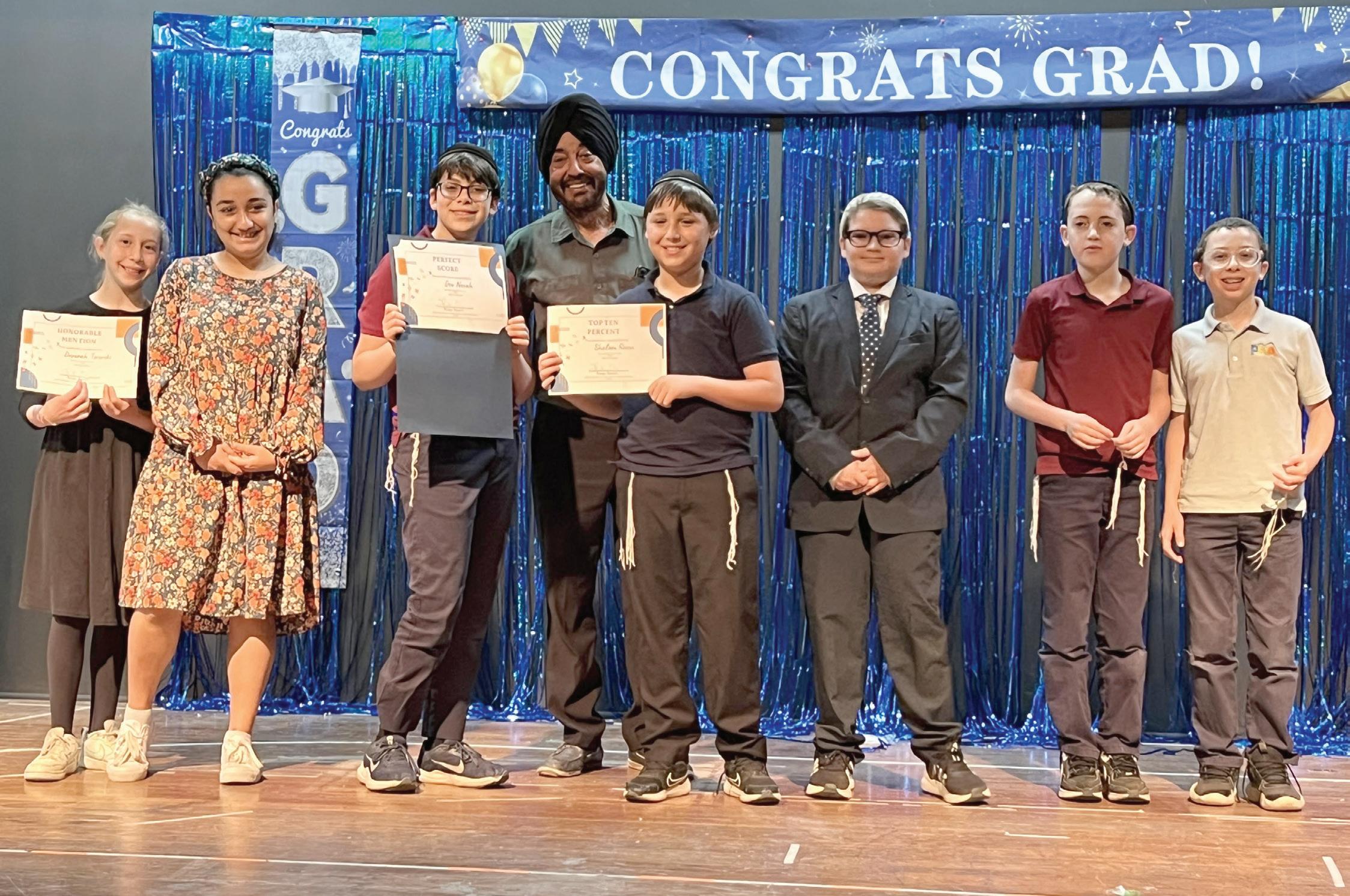
2017, he coached a statewide math team for the Raytheon MathCounts National Competition in Orlando, Florida.
Celebrating all Graduates in our May 23 issue!
Whether it is a preschool graduate or someone earning their master’s degree, celebrate their achievement with a photo, personal message and the school’s name. Or, for only $18, purchase a L’Chaim Listing with the student’s name, high school and college they plan to attend (if applicable) or graduated from.
The same year, he was awarded the Mathematical Association of America’s (MAA) Edyth May Sliffe Awards for Distinguished Mathematics Teaching in Middle School and High School. The awards are given to teachers who have done outstanding work to motivate students in mathematics by participating in one of the MAA American Mathematics Competitions.
Impressed by Nanda’s achievements, a friend told him that many small schools aren’t able to achieve the same high math standards that he expects in his classroom. Realizing he could help small schools with their math programs, he decided it was a perfect challenge for him. He looked around, and PHA had an opening for a math teacher.
“I applied for the job, and the next day they called me. I’ve always been mindful that I must make a difference for my PHA students,” Nanda told Jewish News.
Ad deadline is May 16, contact our team at 602-639-5866 or jlipson@jewishaz.com today!
Nanda knew how to prepare his students for the exam. He gave them CIJE practice questions and the students practiced solving them, “which honed their skills,” he said.
• Savoring experiences, instead of rushing to the next task.
• Engaging in activities that bring joy, like hobbies, art, music, travel or even a simple walk with a friend.
He used a variety of instructional methods, including discussion-based instruction, individual practice and group work. They were able to solve problems in front of the class, “which helped in boosting their confidence and keeping their interest alive throughout the class,” he said.
• Limiting multitasking to stay fully engaged with the people and moments in front of us.
• Accepting life’s imperfections, rather than wasting precious energy fighting them.
Nanda also used timed worksheets to prepare them to manage their time during the competition. He advised tackling the easy questions first, then the most difficult ones.
He said teamwork was also a big part of
It’s often been said, and clergy and family members at countless bedsides will confirm; that no one, at the end of their life, ever wishes they had spent more time at the office. They don’t regret not working harder. What they do regret is the time not spent with loved ones: the missed family dinners, the unspoken words, the memories they never made. In our final moments, it’s the relationships, not the accomplishments, which matter most. So today, I empower you: start now. Pick up the phone. Plan that trip. Write that letter. Hug a loved one a little longer. Laugh until you cry. Open your eyes each morning with a prayer of thanks. Journal your memories. Set down your devices and savor a meal without distractions. We don’t control how many days we have. But we do control how present we are for the days we’re given. Time is the ultimate gift. Let’s live like we know it. JN
PHA’s success and that the students were encouraged by their parents “to go full throttle” in preparing for the competition. Nanda said his students were ecstatic about the great results.
“They were jumping around,” he laughed. “We had some music on and we danced. I also danced and we celebrated together. I believe you must celebrate your success,” he said. JN
Bob Roth is the managing partner of Cypress HomeCare Solutions.
For more information, visit phoenixhebrewacademy. com.

SHANNON LEVITT | STAFF WRITER
Early Childhood Center (ECC) classrooms at Temple Chai are being designed to be aesthetically beautiful and rich with sensory experiences. Materials like clay and fabric are on hand and documentation of children’s work will adorn the walls and shelves.
The hope is that these details will facilitate thinking skills so that when a child walks into the room, they feel empowered to follow their curiosity and express themselves.
“We set up the room to create a space where the child feels comfortable, almost as if they’re walking in their home,” Michelle Lutz told Jewish News.
Lutz is Temple Chai ECC’s pedagogista, teacher and driving force behind incorporating the Reggio Emilia method, which every ECC class will use this fall.
The Reggio method was developed in Reggio Emilia, Italy and views children as capable and full of potential. This theory leads to an educational environment where learning is child-led, exploration-based and rooted in relationships — with people, with materials and with ideas.
Getting every teacher up to speed has taken the last two years, according to Amanda Campbell, Temple Chai’s director of education.
“When Michelle came on, it was much easier to help everybody else learn this and officially turn the school to the Reggio method,” she told Jewish News. While giving parents tours of these “intentional classrooms,” they are surprised but intrigued by the theory.
From 2006 to 2010, Lutz taught at Temple Chai before she learned about Reggio. Only after she began studying it formally did she realize that her natural teaching style lent itself to this Italian teaching philosophy. She began studying the method and even traveled to study in the Italian town where it was born.
“It blew my mind seeing how much it’s all about the child, that there is nothing more important than the child in the classroom. That’s something that gets a little lost in traditional early education because we put so much pressure on our children,” she said.
“This is about letting the children be children and thrive and learn through their own natural curiosity,” Campbell told Jewish News.
Temple Chai board member and mom Elana Deuble sees Reggio as a natural progression since “the school has always focused on community, creativity and play-based values but never defined it as a curriculum.”
Since returning to Temple Chai two years
ago, Lutz has helped the other ECC teachers to embrace Reggio as an educational framework, which can be a challenge, she admitted.
“The hard thing for teachers is to be quiet and listen to the child. As teachers, we just want to ask, ‘How are you doing? What are you doing?’ and the questions are constant. With Reggio, the teacher has to observe and know when the time is right to step in and have a conversation with the child,” Lutz explained.
This is critical since the curriculum is derived from conversations with children.
“When I go into a classroom my job is to help develop a curriculum that comes from the child,” she said.
Reggio classrooms offer flexibility instead of fixed schedules. Teachers act as colearners and guides, not directors. Teachers carefully observe, listen and document children’s questions, stories and problems. From this, an emergent curriculum unfolds.
Deuble has observed how this works with her own children. Last year, Lutz was reading stories to different classes about a magic tree house. Not all classrooms connected with it, but Deuble’s son’s class did.
“They created an entire tree house in the back of the classroom to reflect what they were reading in the story,” she said. Meanwhile, her twins’ classroom was learning about colors, but the kids “were really stuck on animals, so they shifted the entire room to be about animals instead of colors. They just learned the colors through the animals.”
Readapting the curriculum to focus on the kids’ interest didn’t detract from the developmental milestones. They still learned their colors, but they did it in a way that reflected what the kids were talking about.
Supporters of Reggio, believe that the approach fosters strong cognitive, social and emotional development. They provide anecdotal evidence that Reggio teaches children to become confident communicators and empathetic collaborators.
Deuble’s son, Zev, was an ECC student before and after Reggio was implemented but her twins have only experienced Reggio.
“I can see the difference,” she said. “Zev knew how to ask for space but didn’t know how to relate to other people the same way the twins do. They can see other kids’ emotions and say, ‘This person is sad; this person is angry.’ With Zev it was always his feelings and his beliefs but the twins are much more community based and see other perspectives.”
“The parents have embraced Reggio
because they see what’s happening to their children,” Lutz agreed.
She has heard from parents of students she taught using Reggio at other schools about continuing benefits. She recounted meeting one student and his mother at a
Dairy Queen six years after having him in her classroom. When he was her student, he had a hard time expressing himself but she knew he loved snakes. She brought him a large piece of fabric and he built a giant


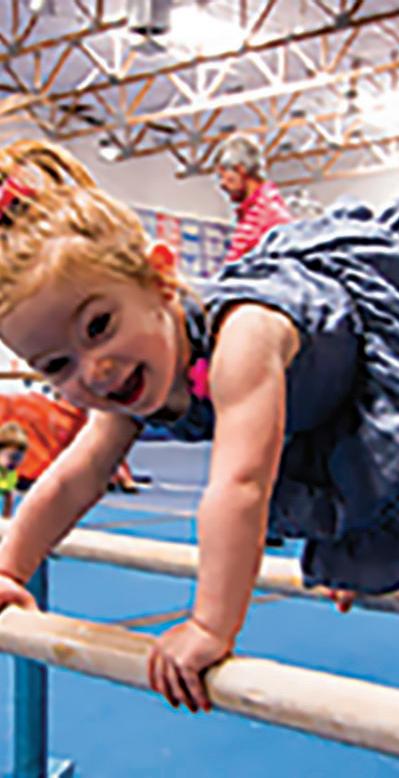
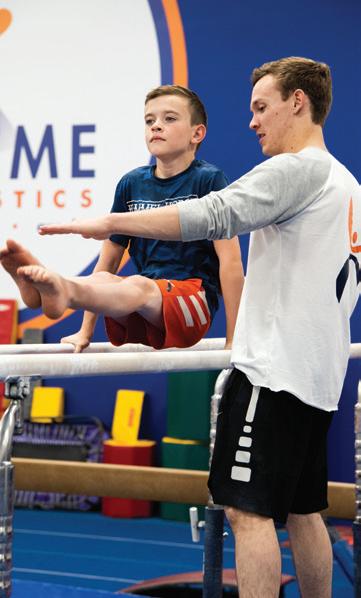
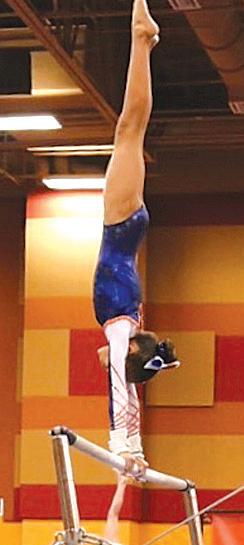
SHANNON LEVITT | STAFF WRITER
In the heart of New York City, where towering skyscrapers cast long shadows over cobblestone streets and buzzing food carts, a small group of Temple Solel teenagers explored a bit of American Jewish history. During the short trip in early April, seven Solel teens visited famous landmarks and traced the footsteps of their ancestors who once arrived

Program




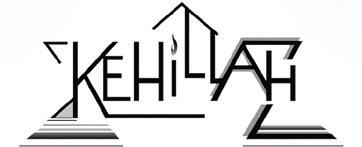

Rabbi Bonnie Sharfman • Administrator, Renee Joffe 602-369-7667 • congregationkehillah.org info@congregationkehillah.org 5858 E Dynamite Blvd, Cave Creek, AZ 85331


at Ellis Island with nothing but hope and determination.
Every year the Paradise Valley temple offers its teens the opportunity to have an experiential learning trip, a chance to be a witness to living history. Yet, it’s not all academic. While the city provides the backdrop, it’s the connections — with each other, with the past and with their cultural identity — that resonate most deeply. The trip gives the young people, many of whom don’t know each other well at the beginning of the trip, a chance to become real friends.
Brody Miles, a 15-year-old sophomore at Basha High School in Gilbert, had been to New York a couple of times before on family trips. This time was totally different, he said.
“The planned activities were fun but all the kids bonded a lot by just walking around together and eating dinner,” he told Jewish News. “Now, we’re a lot better of friends and we have inside jokes.”
Miles liked exploring the historic Jewish spaces in New York, but one thing he didn’t expect to make such a big impact was the 9/11 Memorial Museum. His mother’s friend was a New York firefighter who lost her life that day, and it hit him hard while searching for her name inscribed on the memorial.
“The whole feel and look of it — I had never thought about it like that before. It was more impactful than I thought it would be,” he said.
One of his standout Jewish experiences was visiting the Tenement Museum on the Lower East Side, once the heart of Jewish immigrant life. Teens listened to recreated stories of immigrant families who lived in cramped, candle-lit apartments with little more than a dream of freedom.
“Seeing the rooms and hearing what happened to people when they got there was really interesting,” Miles said.


“They were able to sit in the spaces and realize how tight and restrictive it was to live there, trying to raise an entire family in two rooms,” Rafi Abramowitz, Solel’s religious school coordinator and trip chaperone, told Jewish News.
“They took away an appreciation for the difficulties people had to go through to start a new life,” he said.
He figured that Solel kids don’t see many tenements in Paradise Valley, so he got them talking about what it’s like being a Jew in America now vs. 100 years ago, when Jews had to work in a sweatshop and had only a few items to their name.
While already in the Lower East Side neighborhood, teens took a walking tour, divided into teams and challenged to a timed scavenger hunt. They had an app asking questions about Jewish landmarks in the area. They were charged with finding their way to buildings with Jewish historical significance, including the headquarters of The Forward. They had to prove they had visited each place by submitting photos of themselves doing something to the app.
Abramowitz’s winning team called themselves the Jewish Joggers.
“I liked the scavenger hunt because it was an excellent example of experiential learning. They really felt that they were learning the neighborhood, and it’s when they were the most engaged,” he said.
The teens also visited synagogues like Congregation Emanu-El, the first Reform Jewish congregation in New York City.
“It was cool seeing that big temple. (Emanu-El is one of the largest synagogue buildings in the world.) We took a tour and found out it was built in only two years! (1928-1930) It’s not like any temple I’ve ever seen before,” Miles said.
Going to Shabbat services at Congregation Beit Simchat Torah, a spiritual home for people of all sexual
orientations and gender identities, also made an impression on him.
“The service was good and it was very welcoming. They weren’t always welcomed into places so they were welcoming,” he said.
Solel Rabbi Debbie Stiel was gratified that all the Solel teens got a chance to speak to Beit Simchat Torah’s rabbi and feel what “a strong sense of community” there was.
“The kids learned about the commitments to helping each other throughout time, such as with the AIDS quilt and their immigration program that helps people become citizens,” Stiel told Jewish News.
Solel has LGBTQ+ members and the visit to a temple dedicated to that community “taught our kids in a meaningful way how committed the liberal Jewish community is to affirming gender diversity,” she said.
On the way to Ellis Island, the group passed the Statue of Liberty and talked about Emma Lazarus’ famous poem about welcoming the world’s poor.
“The fact that welcoming those in need of a new home is being brought into question right now is something we talked about, and the kids are concerned about whether America will continue to live up to that promise,” Stiel said.
The trip was full of history and also full of fun, such as when they saw a Broadway play and ate at Katz’s Deli, but one of Stiel’s most gratifying moments was the visit to Emanu-El.
“We had been walking around and seeing huge churches, so seeing a temple like that also said the Jewish community belongs here and has this footprint in the city was meaningful,” she said.
“It was surprising to learn that their congregation, with 2,800 families, has a confirmation class the same size as ours. It made me feel good about what we’re able to do here at Solel.” JN
snake with it, which helped him focus. The snake helped him communicate. When Lutz encountered him years later, he told her he still had the snake. His mother said he is successful in school and even received an award for his kindness and generosity.
Campbell has noticed the difference Reggio has made on the behavior of the students and their ability to regulate themselves.
“I’ve seen them step back, refocus and reintegrate into what is happening in the classroom. They recognize when they’re having feelings and they can communicate
them with their teacher. I’ve witnessed their skills firsthand when I’ve chatted with them,” she said.
The hope is that Reggio will help Temple Chai ECC students to go to kindergarten and beyond with skills and confidence that will put them on the path to success. Lutz, Campbell and Deuble are confident that the school’s embrace of the educational theory will pay off down the road. JN
For more information, visit templechai.com/ecc.

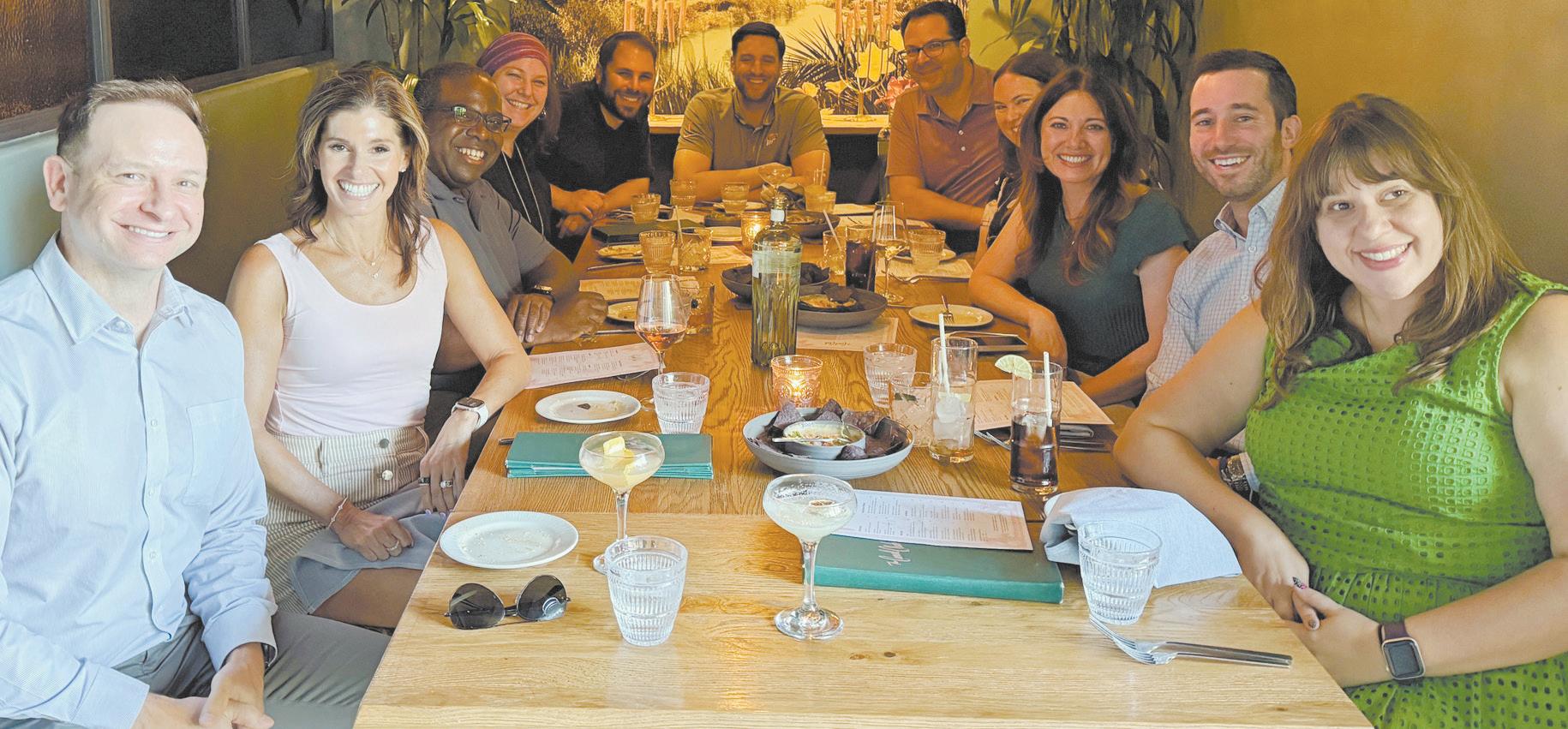
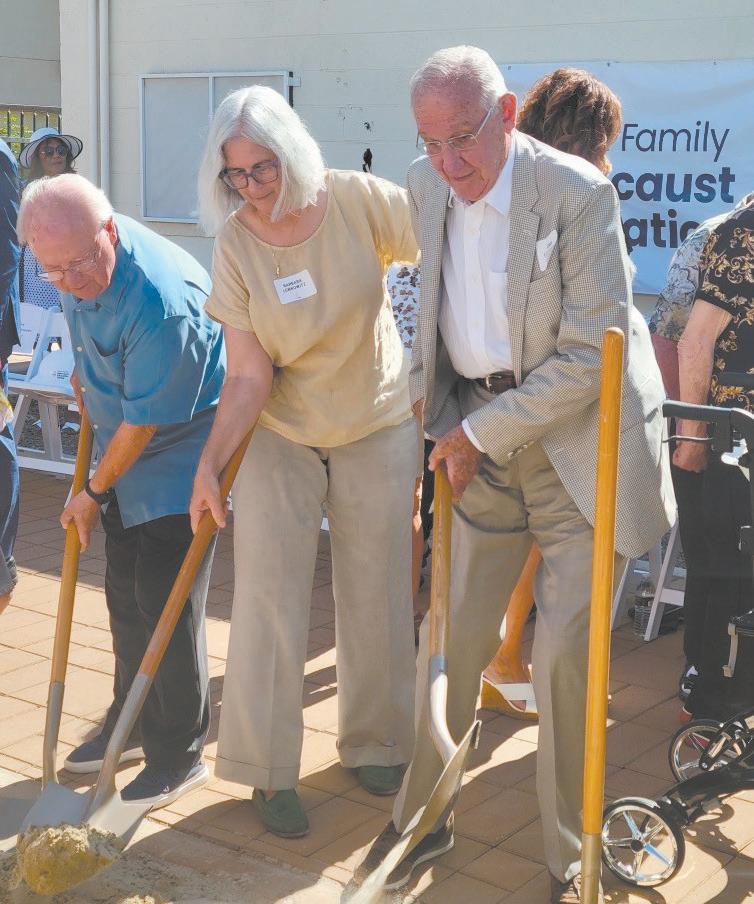
Holocaust remembrance
It’s good for your heart
Temple Beth
are you supposed to
the keynote speaker
the temple’s interfaith Holocaust Remembrance Day program. She shared how her family members helped save about 200 relatives and friends from Nazi Germany in the 1930s.
On Wednesday, April 9, the Valley of the Sun JCC Intermediate Pickleball League finished its nine-week tournament. For one day every week, during the course of the competition, participants played six games. Harriet Colan, longest tenured full-time employee at the Valley of the Sun Jewish Community Center, and pictured in a lavendar t-shirt, shows off her second-place medal.
The Jewish Community Relations Council of Greater Phoenix hosted its annual Latino Jewish Seder last month to bring together the Jewish and Latino communities to share traditions, stories and meaningful conversations over a Passover Seder.

Jewish War Veterans Post 619 set up poppy tables at Fry’s Marketplaces where volunteers collected donations from generous shoppers over the Memorial Day weekend. Pictured is JWV
Leo, one of the newest members of Temple Chai, wears a hard hat during the Phoenix synagogue’s groundbreaking at its new home.
Tikkun Olam Together, a program of the Center for Jewish Philanthropy of Greater Phoenix, worked to support the Bureau of Jewish Education of Greater Phoenix’s Passover Food Drive. Mothers and daughters packaged holiday candles and greeting cards, and added them to the Passover food packages that were delivered a few days before the start of the holiday.
Smile on Seniors hosted its Jewish Active Mature Adults brunch social on Feb. 23.
Pictured from left are Ana Spence, Linda Lober, Michael and Nancy Mendelsohn, Andrea Silvey, Peter and Irene Baron, Isy and Benita Sonabend, David Termine and Dave Shooten.
OF SMILE ON SENIORS
Todd Herzog, right, and Colton Rahav, left, took part in Congregation Beth Tefillah’s Passover concert and BBQ last month in Scottsdale.
Andrea Cohen, center, thanked the members of Salk AZA (a boy’s chapter of BBYO) for hosting a bake sale to benefit the Center for Jewish Philanthropy of Greater Phoenix Camp Scholarship Program. Their efforts will help CJP send hundreds of local campers to Jewish camps across North America.

Scottsdale’s Congregation Beth Tefillah members mixed it up with various costumes at the Purim Party in March.
Phoenix Board of Rabbis Executive Committee. The
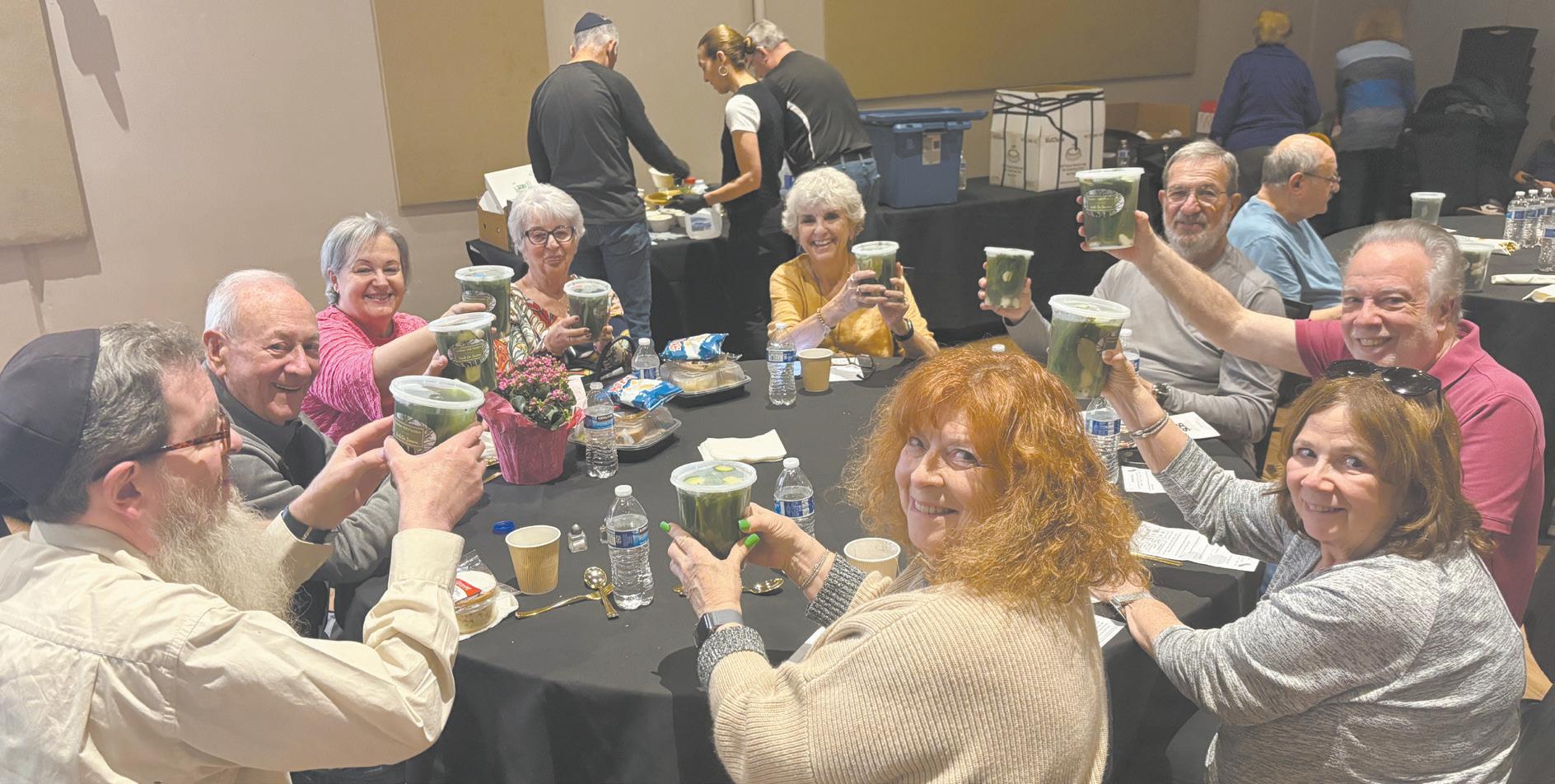
committee is pictured from left:
co-treasurer; Beth El Congregation Rabbi Nitzan Stein-Kokin, vice president; Green; Congregation Beth Israel Rabbi Sara Mason-Barkin, secretary; and Temple Kol Ami Rabbi Jeremy Schneider, immediate past president. Not pictured is Rabbi Mark Bisman, co-treasurer.
Every month, the women of Congregation Beth Tefillah’s Book Club delve into Jewish literature from around the world, reading fiction, non-fiction and everything in
Jerry Lewkowitz,
Beth
youth
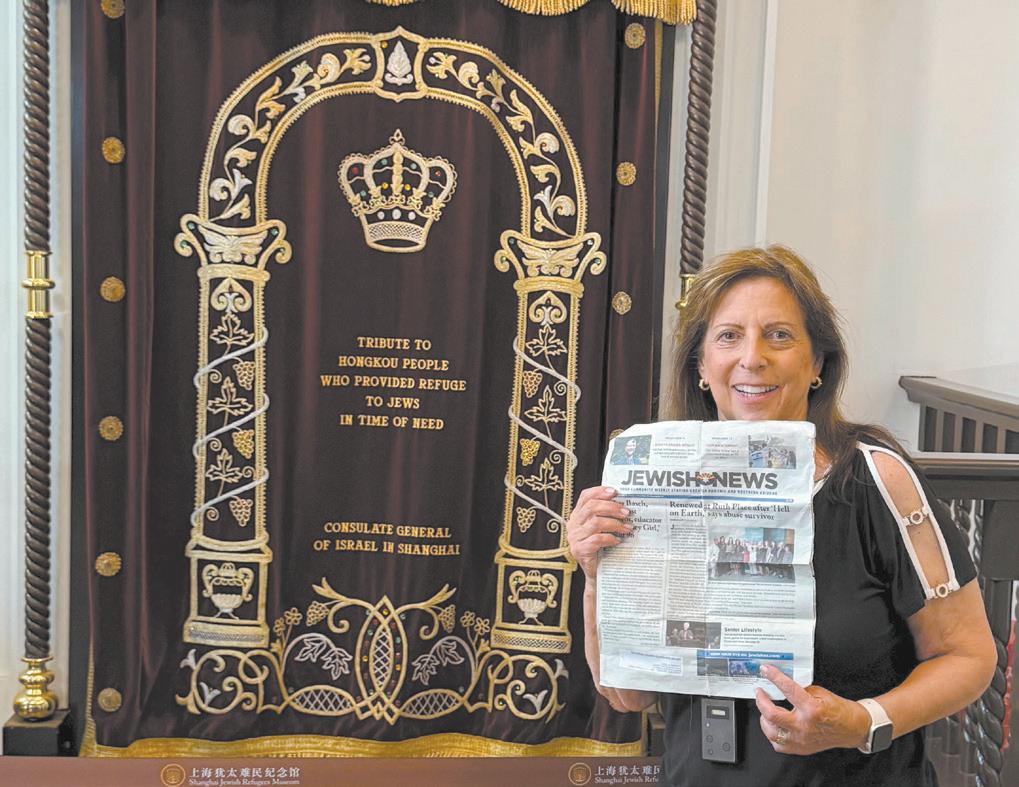
This COMMUNITY page features photos of community members
This COMMUNITY page features photos of community members around the Valley and the world. Submit photos and details each
This COMMUNITY page features photos of community members around the Valley and the world.
On Thursday, April 24, several Jewish organizations recruited volunteers for “Reading of Names” on Yom HaShoah. Leah Berenson of the Center for Jewish Philanthropy of Greater Phoenix is pictured here reading the names of people murdered during the Holocaust.
On Sunday, March 23, Temple Solel hosted its annual Women’s Passover Seder. It was an evening of spirituality, song and shared tradition led by Solel Rabbi Debbie Stiel and including the vocals of Tamara Lieberman. This special Seder weaves together the rich tapestry of Jewish heritage with the voices and experiences of women.
On Sunday, April 6, 14 NowGen-aged individuals (22-45) came together for a nature walk through the
SUNDAY, AUG. 10
2025 Jewish Community Day with the Diamondbacks:
1:10 p.m. Chase Field, 401 E. Jefferson St., Phoenix. Join the Center for Jewish Philanthropy of Greater Phoenix for an afternoon of community and baseball as the Arizona Diamondbacks take on the Colorado Rockies. Secure area available during the game with activities, giveaways, a photo booth and more. Cost $27 & up adults, discount for ages 15 and under; each ticket includes a free D-Backs Hebrew drawstring bag (limited quantity available). For more information, visit phoenixcjp.org/diamondbacks.
For an updated listing of events and resources,
THROUGH THURSDAY, AUG. 28
Summer Camp for Adults: Times and addresses vary; some classes available online. Join Brandeis National Committee Phoenix Chapter for activities and classes throughout the summer. For more information, visit brandeisphoenix.org.
FRIDAY, JULY 18
Build Heat Relief Kits with United Way: 10-11:30 a.m. Valley of the Sun Jewish Community Center, 12701 N. Scottsdale Road, Scottsdale. Join the VOSJ and United Way to assemble Heat Relief Kits for those most affected by the extreme heat. For more information, visit valleyofthesunj.org/calendar.
SUNDAY, JULY 20
Berta Ann Greenblatt Memorial Library Grand Opening: 10 a.m.-12 p.m. Beth El Phoenix, 1118 W. Glendale Ave., Phoenix. Join Beth El Early Childhood Center and guest author Debbie Clement to celebrate the grand opening of their newly refurbished library. For more information, visit bethelphoenix.com/preschool.
Jewish/Yiddish Word Bingo: 2-4 p.m. Beth Emeth Congregation of the West Valley, 13702 W. Meeker Blvd., Sun City West. Join Beth Emeth for an afternoon of bingo using Hebrew and Yiddish words. Cost: $5; light refreshments included. RSVP required. For more information, visit bethemethaz.org or call 623-584-7210.
SUNDAY, JULY 27
PHA Annual Ice Cream Social: 1-2:30 p.m. Beth El Phoenix, 1118 W. Glendale Ave., Phoenix. Join the Phoenix Holocaust Association for its annual ice-cream social for Holocaust survivors, 2Gs, 3Gs, family and friends. $15 adults, $10 ages 12 and under, free for survivors. For more information, visit phxha.com/events/ pha-annual-ice-cream-social.
Singing & Swimming: 4-7 p.m. Address provided upon registration. Bring your swimsuit and join Beth El Phoenix for sing alongs, hot dogs, potato salad and chips. Bring a pareve or vegan dessert to share. For more information, visit bethelphoenix.com/event/pool-party.
SUNDAY, JULY 27-FRIDAY, AUG. 1
2025 JCC Maccabi Games: Times vary. Various locations across Tucson. This Olympicstyle sporting event is for Jewish teens aged 13-17 and includes sports competitions, community service projects and cultural events, For more information, visit jccmaccabi.org/ jcc-maccabi-2025-in-tucson.
WEDNESDAY, JULY 30
92nd Street Live: An vening with Andy Cohen: 10 a.m.-12 p.m. Valley of the Sun Jewish Community Center, 12701 N. Scottsdale Road, Scottsdale. Join the VOSJ for a streaming
program featuring Andy Cohen, bestselling author, producer and television host, as he discusses his latest book, “The Daddy Diaries.” Cohen shares stories of fatherhood, fame and life behind the scenes, offering a heartfelt and humorous look into his personal journey. For more information, visit valleyofthesunj.org/ calendar.
SATURDAY, AUG. 2
Erev Tish’a B’av Seudah Shlishit: 6 p.m. Beth El Phoenix, 1118 W. Glendale Ave., Phoenix. Join Beth El for Torah study and a cholent meal. Bring your teens to hang out while adults study and socialize. Please bring a pareve side dish. For more information, visit bethelphoenix.com/event/tisha-bav-seudah.
FRIDAY, AUG. 8
Thoughts of a Jewish World War II Veteran: 10 a.m. Online via Zoom. Join the Arizona Jewish Historical Society for a presentation by Dr. Gerald Weiner about his involvement in the United States Navy, prior to V-J Day. For more information, visit azjhs.org/ ajhs-events-list.
Meetings, Lectures & Classes
SUNDAYS
Chassidus Class: 9 a.m. Online. Learn about the Chasidic movement with Rabbi Yossi Friedman. Use this link: ChabadAZ.com/LiveClass. Cost: Free. For more information, visit chabadaz.com.
Jewish War Veterans Post 210: 10 a.m. Online. Any active duty service member or veteran is welcome to join monthly meetings, every third Sunday. Cost: Free. For more information, email Michael Chambers at c365michael@yahoo.com.
MONDAYS
Pomegranate Guild of Judaic Needlework, Desert Cactus Chapter: 10 a.m. The Oasis at Sagewood, 4555 E. Mayo Blvd., Phoenix. The guild meets the third Monday of the month, adjusted when necessary to accommodate Jewish holidays. For more information, visit pomegranateguild.org.
Mahjong: 1:30-3:30 p.m. East Valley Jewish Community Center, 908 N. Alma School Road, Chandler. Come play mahjong each week. For all levels. Cost: Free; registration required at evjcc.org/mahjong.
Quotable Quotes by our Sages: 7 p.m. Online. Learn with Rabbi Shlomy Levertov. Use this link: JewishParadiseValley.com/ class. Cost: Free. For more information, visit chabadaz.com.
Partners in Torah: 7:30 p.m. Online. Join a growing group of inspired learners with Project Inspire. Cost: Free. Use this link: us04web.
zoom.us/j/3940479736#success, password is 613. For more information, email Robin Meyerson at robin@projectinspireaz.com.
Learning to Trust in God: 7:30 p.m. Online. Learn with Rabbi Yossi Friedman. Use this link: ChabadAZ.com/LiveClass. Cost: Free. For more information, visit chabadaz.com.
Single Parent Zoom: 8 p.m. First and third Monday of every month. Join The Bureau of Jewish Education’s Family University single parents’ group for those looking to form friendships and build their support system with like-minded people. For more information or to register, visit bjephoenix.org/ family-university.
TUESDAYS
Let’s Knit: 1:30 p.m. Ina Levine Jewish Community Campus, 12701 N. Scottsdale Road, Scottsdale. Share the pleasure of knitting, crocheting, etc. outside the social hall in the campus. Can’t knit? They will teach you! Every level welcome. Cost: Free. For more information, visit vosjcc.org.
Maintaining an Upbeat Attitude: 7 p.m. Online. A class exclusively for people in their 20s and 30s, learn how Jewish Mysticism can help with your attitude with Rabbi Shlomy Levertov. Use this link: JewishParadiseValley. com/YJPclass. Cost: Free. For more information, visit chabadaz.com.
Torah Studies: 7:30 p.m. Online. Learn with Rabbi Mendy Levertov. Use this link: ourjewishcenter.com/virtual. Cost: Free. For more information, visit chabadaz.com.
WEDNESDAYS
Torah Study with Temple Beth Shalom of the West Valley: 11 a.m.-12:30 p.m. Online. Weekly study group explores that week’s portion and studies different perspectives and debates the merits of various arguments. Intended for adults, Torah study is open to students of all levels. For more information, contact the TBS office at 623-977-3240.
Torah Study with Chabad: 12 p.m. Online. Take a weekly journey of Torah with Rabbi Yossi Levertov. Cost: Free. For more information, visit chabadaz.com.
Grief Support Group: 5-6 p.m. Online via Zoom. Therapist Susan Charney MCW, LCSW, leads a grief support group every first and third Wednesday of the month virtually for individuals experiencing the loss of an adult child or sibling. In lieu of any fees for these sessions, donations to Temple Solel are appreciated. For more information, contact susancharneycounseling@gmail.com.
History of the Jews: 7 p.m. Online. Learn the Jewish journey from Genesis to Moshiach with Rabbi Ephraim Zimmerman. Use this link:
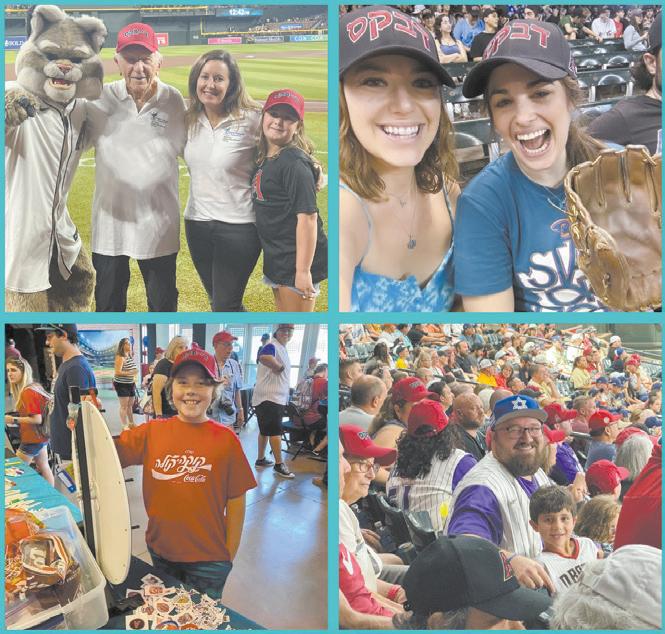
zoom.us/j/736434666. Cost: Free. For more information, visit chabadaz.com.
JACS: 7:30-8:30 p.m. Online. Zoom support group for Jewish alcoholics, addicts and their friends and family on the first and third Wednesdays of the month. Cost: Free. For more information, email jacsarizona@gmail. com or call 602-692-1004.
THURSDAYS
Ladies Torah & Tea: 10:30 a.m. Online. Learn about the women of the Torah with Mrs. Leah Levertov. Use this link: ourjewishcenter.com/ virtual. Cost: Free. For more information, visit chabadaz.com.
Talmud - Maakos: 11 a.m. Online. Learn with Rabbi Shlomy Levertov. Cost: Free. Use this link: JewishParadiseValley.com/YJPclass. For more information, visit chabadaz.com.
The Science of Everything: 11 a.m. Online. Explore the most fundamental work of Chassidut: the Tanya, with Rabbi Boruch. Use this link: zoom.us/j/736434666. Cost: Free. For more information, visit chabadaz.com.
Mindfulness Gatherings: 12 p.m. Online. Hosted by Hospice of the Valley via Zoom. Cost: Free. To join by phone, dial 1-253-2158782, meeting ID 486 920 2119#, to get the Zoom link or for further questions contact Gill Hamilton at ghamilton@hov.org or 602-748-3692.
Weekly Mahjong: 1-3 p.m. Temple Solel, 6805 E. McDonald Drive, Paradise Valley. Join Temple Solel each Thursday afternoon for mahjong. Lessons available for beginners. Cost: Free. RSVP via email to dottiebefore@gmail. com so they know how many tables to set up. Torah Portion Class: 7 p.m. Online or in person. Chabad Lubavitch of Fountain Hills, 16830 E. Avenue of the Fountains, Fountain Hills. Join Rabbi Mendy Lipskier for a discussion of the weekly parshah and gain new insights to the Torah. For more information, visit jewishfountainhills.com.
SATURDAYS
Saturday Mindfulness Gatherings: 9:30 a.m. Online. Hosted by Hospice of the Valley. To join by phone, dial 1-253-215-8782, meeting ID 486 920 2119#. To get the Zoom link or for more information, contact Gill Hamilton at ghamilton@hov.org or 602-748-3692.
Book Discussion: 1:30-2:30 p.m. Online. Join Or Adam Congregation for Humanistic Judaism on the third Saturday of every month for a book discussion. For more information and to register, contact oradaminfo@gmail.com.
Shabbat
FRIDAYS
Shabbat in the Park: 10-11 a.m. Cactus Park, 7202 E. Cactus Road, Scottsdale. Join the Bureau of Jewish Education of Greater Phoenix monthly for music, parachute play, crafts and a family Shabbat experience. For more information, visit bjephoenix.org.
Welcome Shabbat: 11-11:30 a.m. Online. Celebrate Shabbat with the JFCS Virtual Center for Senior Enrichment. Each week a different guest host will lead the program with song and celebration. Cost: Free. For more information, visit jfcsaz.org/cse.
Shabbat at Beth El: 5:45 p.m. on Zoom; 9:30 a.m. at Beth El Phoenix, 1118 W. Glendale. Ave., Phoenix or livestreaming at tinyurl.com/beclivestream. Celebrate Shabbat with songs, blessings and teachings with Rabbi SteinKokin and Cantor Sarah Bollt. For more information or to join, visit bethelphoenix.com.
Erev Shabbat Service: 5:30 p.m. Online. Rabbi Alicia Magal will lead a service livestreamed for members of the Jewish Community of Sedona and the Verde Valley. Cost: Free. For more information and to obtain the Zoom link, visit jcsvv.org/contact.
Shabbat Service: 5:30-6:30 p.m.; Oneg at 5 p.m. Temple B’rith Shalom, 2077 Brohner Way, Prescott. Join Temple B’rith Shalom for a musical and spiritual Shabbat service. For more information, visit brithshalom-az.org.
Shabbat Services: 5:30 p.m. nosh, 6:15 p.m. service; morning service has varying dates and times. Temple Chai, 4645 E. Marilyn Road, Phoenix. For more information, contact Joan Neer at jneer@templechai.com.
Pre-Shabbat Kiddush Club: 6 p.m. Online. Say Kiddush with Rabbi Mendy Levertov. Cost: Free. Use this link: ourjewishcenter.com/virtual. For more information, visit chabadaz.com.
Shabbat Services: 6 p.m; 9:30 a.m. Congregation Or Tzion, 16415 N. 90th St., Scottsdale. Services are also live streamed at otaz.org/ livestream. For more information about services, events and membership, visit congregationortzion.org or call 480-342-8858.
First Friday Shabbat Services: 6:15 p.m.; Oneg at 7:15 p.m. Valley Unitarian Universalist, 6400 W. Del Rio St., Chandler. Join Congregation NefeshSoul for Friday night services the first Friday of each month in the sanctuary building of Valley Unitarian Universalist. For more information, contact Jim Hoffman at 480-329-3316.
Shabbat Services: 6:15 p.m; 10 a.m. Congregation Beth Israel, 10460 N. 56th St., Scottsdale. Services held in the Goldsmith Sanctuary. Participants must pre-register by Thursday at 5 p.m. Priority will be given to members first and then guests. If there are more requests than available seats a lottery system will be used. For more information or to make a reservation, visit cbiaz.org/ shabbat-services.
Kabbalat Shabbat and/or Shabbat morning service: 6:30 p.m.; 10 a.m.; dates vary. Congregation Kehillah, 5858 E. Dynamite Blvd., Cave Creek. Join Rabbi Bonnie Sharfman and cantorial soloists Erica Erman and Scott Leader either in person or via Zoom. For safety reasons, please register ahead of time. For dates, visit congregationkehillah.org/ event/. Register by emailing info@congregationkehillah.org.
Shabbat Services: 7 p.m. Temple Beth Shalom of the West Valley, 12202 N. 101st Ave., Sun City. Services are followed by an Oneg. Services are live-streamed on YouTube. For more information and to get the YouTube link, visit tbsaz.org or call 623-977-3240.
Shabbat Services with Beth Ami Temple: 7 p.m. Services held at Unitarian Universalist Congregation of Phoenix, 4027 E. Lincoln Dr., Paradise Valley. Join Beth Ami Temple Rabbi Alison Lawton and Cantorial Soloist Michael Robbins as they lead Shabbat services twice a month. For more information, visit bethamitemple.org.
Third Friday Shabbat: 7-9 p.m. Group meets at a North Scottsdale location. The Desert Foothills Jewish Community Association hosts a Shabbat service followed by a program. Contact 602-487-5718 for more information.
MONDAYS
Fitness Xpress Series with Zoe: 11-11:30 a.m. Online. Presented by JFCS Center for Senior Enrichment. Workout features weight and band exercises as well as yoga poses. Exercises will be demonstrated standing, but can also be done sitting in a chair. Cost: Free. For more information, visit jfcsaz.org/cse.
Sip & Schmooze: 11 a.m. milk + honey, 12701 N. Scottsdale Road, Scottsdale. Sip on kosher coffee or tea, enjoy a pastry and schmooze every second Monday of the month. RSVP appreciated to chani@sosaz.org or 602-4927670. For more information, visit sosaz.org.
Featured Presentation: 12:30 p.m. Online. Join Smile on Seniors Mondays and Wednesdays to learn from a variety of presenters about topical issues, like Q&As with medical professionals, entertainers and lectures. Cost: Free. For more information, visit sosaz.org/ virtual or email Rabbi Levi Levertov at levi@ sosaz.org.
TUESDAYS
Movie Discussion Group: 11 a.m. Online. Join Smile on Seniors on the third Tuesday of every month hosted by Issy Lifshitz. Cost: Free. For full details and the movie of the month visit sosaz.org/virtual or email Rabbi Levi Levertov at levi@sosaz.org.
WEDNESDAYS
Fitness Fun with Zoe: 10-10:45 a.m. Online. Presented by JFCS Center for Senior Enrichment. Workout features light chair exercises with optional weights. Cost: Free. For more information, visit jfcsaz.org/cse.
Chair Yoga with Zoe: 11-11:45 a.m. Online. Presented by JFCS Center for Senior Enrichment. 45-minute chair yoga class. No prior yoga experience required. Cost: Free. For more information, visit jfcsaz.org/cse.
THURSDAYS
Memory Cafe: 10-11 a.m. first Thursday; 1-2 p.m. third Thursday. Online. Presented by Jewish Family & Children’s Service. Program for those with changes in their thinking or memory, mild cognitive impairment due to Alzheimer’s disease or a related disorder, along with their care partners. For more information, visit jfcsaz.org/our-services/ older-adult-services/memory-cafe/.
In the Kitchen with Benita: 12:30 p.m. Join Smile on Seniors on the fourth Thursday of every month for some delicious cooking or baking fun! Cost: Free. For full details visit sosaz.org/virtual or email Rabbi Levi Levertov at levi@sosaz.org.
FRIDAYS
Welcome Shabbat: 11-11:30 a.m. Online. Celebrate Shabbat with the JFCS Virtual Center for Senior Enrichment. Each week a different guest host will lead the program with song and celebration. Cost: Free. For more information, visit jfcsaz.org/cse.
Sit or Stand Ballet Class: 12-12:45 p.m. Online. Presented by JFCS Center for Senior Enrichment. Jennifer Cafarella Betts and Friends from Ballet Theatre of Phoenix teach this class. Grab a chair or you can stand next to a chair or counter. Cost: Free. For more information, visit jfcsaz.org/cse.
Musical Friday: 12:30 p.m. Online. Join Smile on Seniors on the first Friday of every month for a musical presentation. Cost: Free. For full details visit sosaz.org/virtual or email Rabbi Levi Levertov at levi@sosaz.org. JN
Irene B. Metz (née Bluestone) of Scottsdale died on June 14, 2025. She was 95. Irene was born in Pittsburgh, Pennsylvania.
Irene was preceded in death by her husband, E. David Metz; and she is survived by her son Samuel Metz (Margaret Jennings); her son Matt Metz (Claudette); her grandson Alex Metz (Dev Castro); and many other family members.
Services were held on June 17, 2025, at Mt. Sinai Cemetery in Phoenix and officiated by Rabbi Martin Scharf.
Donations in her name may be made to Grayhawk Classic Residents Foundation, 7501 E. Thompson Peak Parkway, Unit 100, Scottsdale, AZ 85255-3887, or the charity of your choice. JN
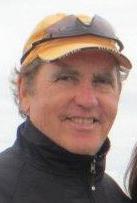
Steven Robert “Steve” Heit, longtime Arizona resident, who for the last few years resided in Laguna Woods, California, passed away unexpectedly on April 11, 2025. He had battled acute myeloid leukemia for several years but had not shared with many people that he was ill. During that time, he managed to continue doing many of the things he loved — photography, travel, golf, boating, woodturning, lectures, discussion groups, visits with friends. He was remarkably resilient and was determined not to let the illness limit him. He was an athlete to the end.
Steve was born in Ellenville, New York, in 1943, and spent his teenage summers working as a waiter in the Catskills. He was an avid baseball and tennis player and, at any early age, his love of photography took him into the world of professional tennis where he photographed the U.S. Open Tennis Tournaments at Forest Hills.
Steve forged his own path, building a career first in finance on Wall Street, obtaining an MBA from Bernard Baruch College at the City University of New York. But his true passion was art and photography, and he also received a degree from the School of Visual Arts in New York. Steve established Heit Galleries in Phoenix in 1974, an art and photography gallery on Camelback Road in Central Phoenix that had a strong following for many years, drawing in artists from around the country. During those years, Steve continued to photograph professionally in several different sports for events and publications.
After he closed the gallery, Steve traveled the world pursuing a career in a field he did much to define — commercial golf course photography. He worked his way around the world, one adventure after another, photographing the famous players and golf courses of his time, working for many years with the Arnold Palmer Design Company. His photographs had a special spirit, filled with wonderful color and joy, and can be found today at golf courses and resorts around the world.
Steve was a true Renaissance man, always reading, learning, looking for new pursuits, searching for places to visit, designing spaces and objects. He was a “Sammy,” a Sigma Alpha Mu man at State University of New York at Buffalo, staying in touch with his pals on regular Zoom calls. He was an enthusiastic member of the GEL “Gentlemen Enjoying Leisure” group when he lived in Scottsdale and formed a similar group in his California community. In recent years, he became a skilled woodturner, creating stunning bowls. He loved jazz and was not too shabby as a saxophone player. He was a lifelong athlete, waterskiing into his late 60s.
Steve gave tirelessly of his time to help charities raise funds through golf tournaments and auctions, both in the Valley and in Coeur d’Alene, Idaho, where he and his long-time partner, Ruth, had homes for many years. Steve loved the home on the lake and his beloved dogs. He was a skilled boater, as much at home on a boat as on a golf course. His favorite expression was “If you’re lucky enough to live on the water, you’re lucky enough.”
Steve greeted every day with enthusiasm and a sense of opportunities yet to be explored. His friendship, unique sense of humor, keen intellect and impassioned conversation will be sorely missed by his many dear friends around the country. Steve was laid to rest at Miramar National Cemetery, the veterans’ cemetery in San Diego. In enduring love and friendship, he rests now near the water. A Celebration of Life will be planned.





















